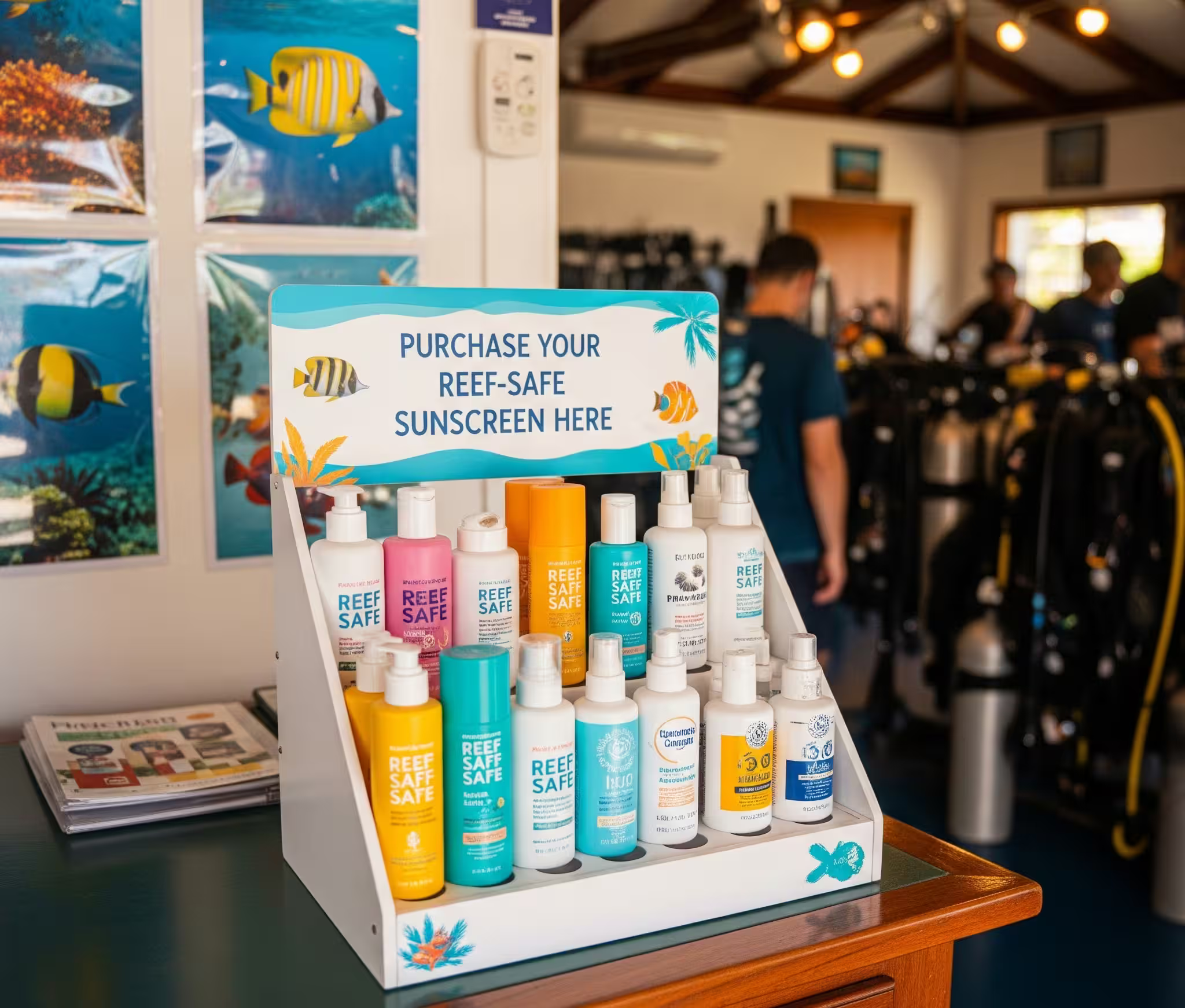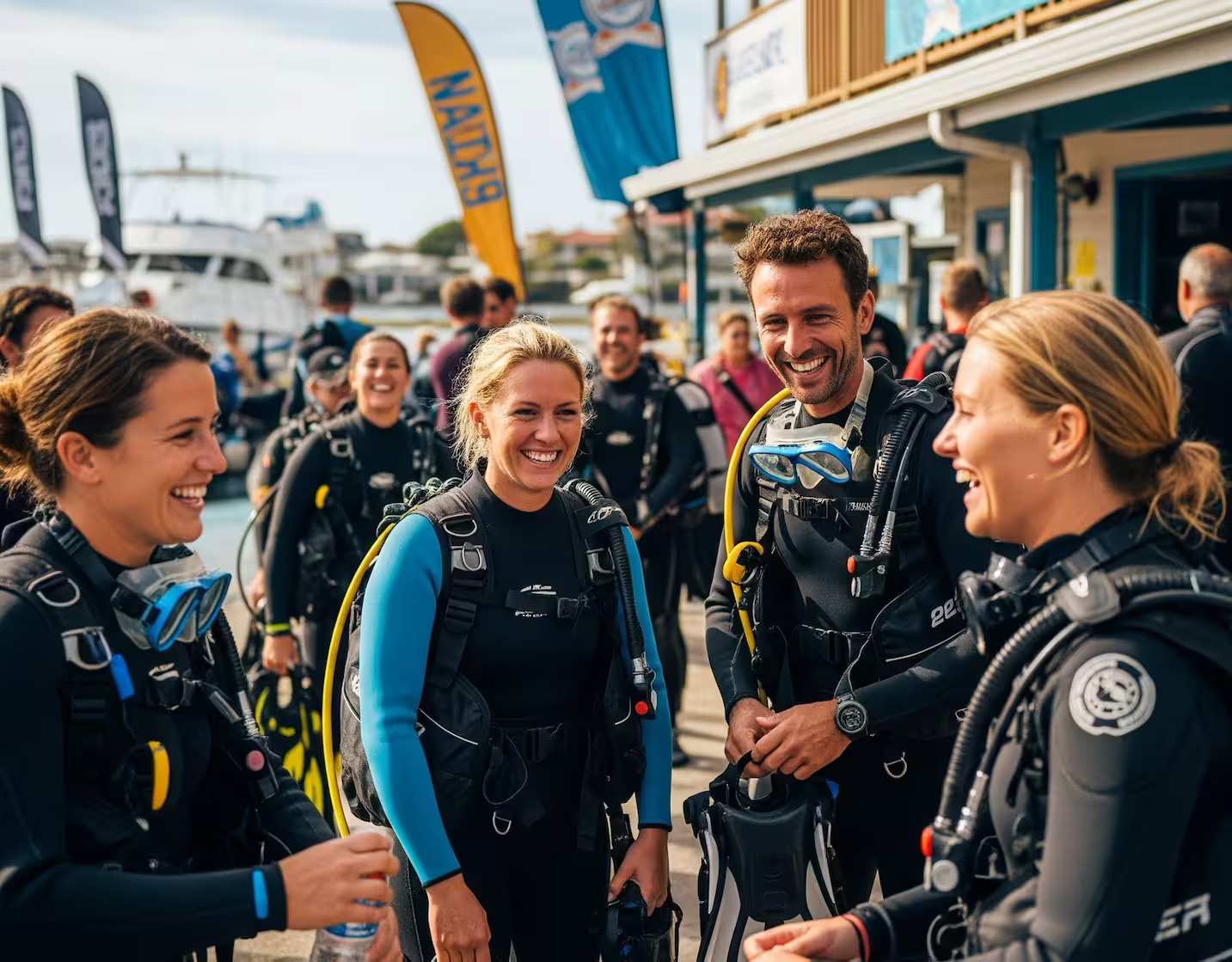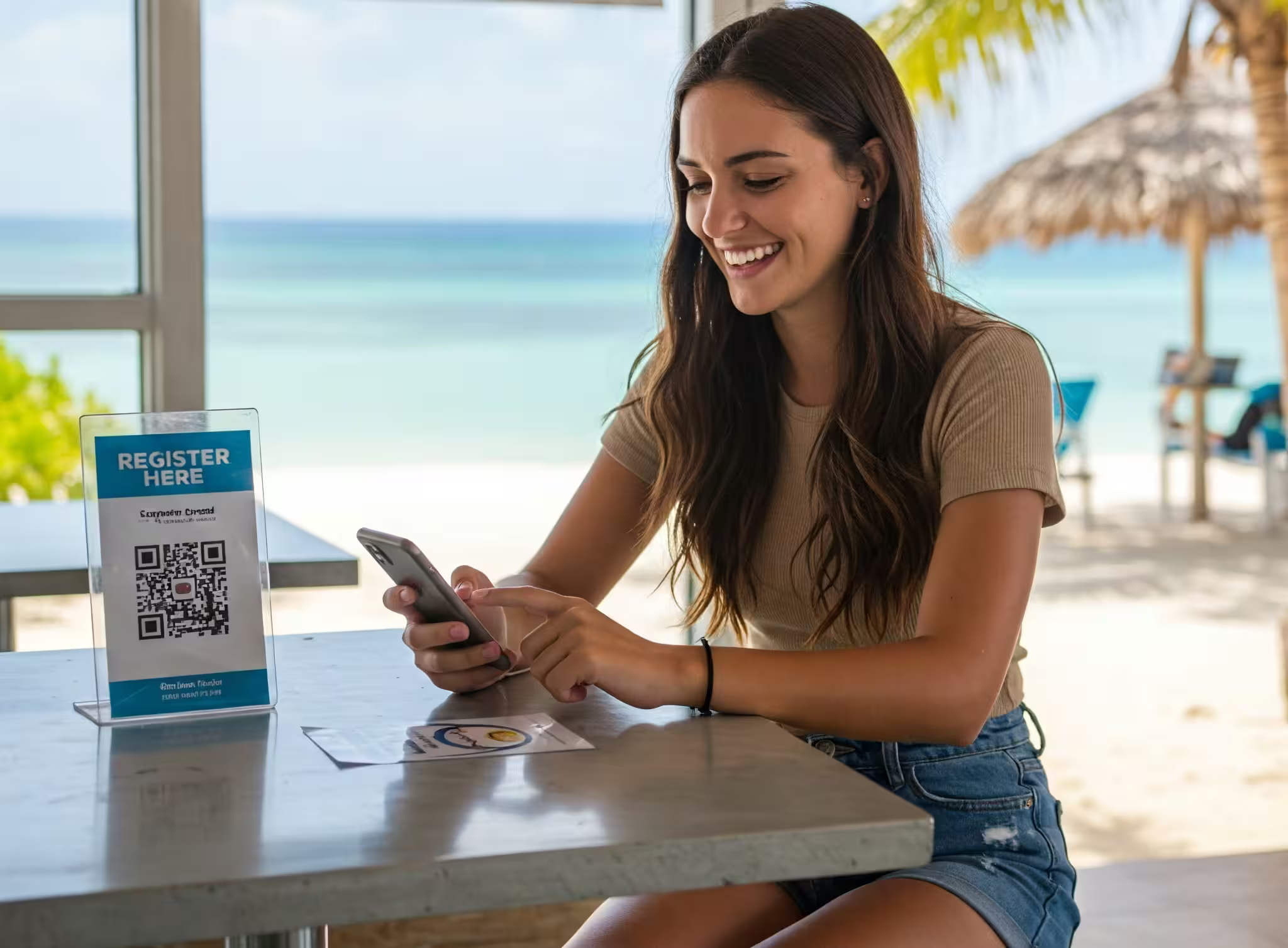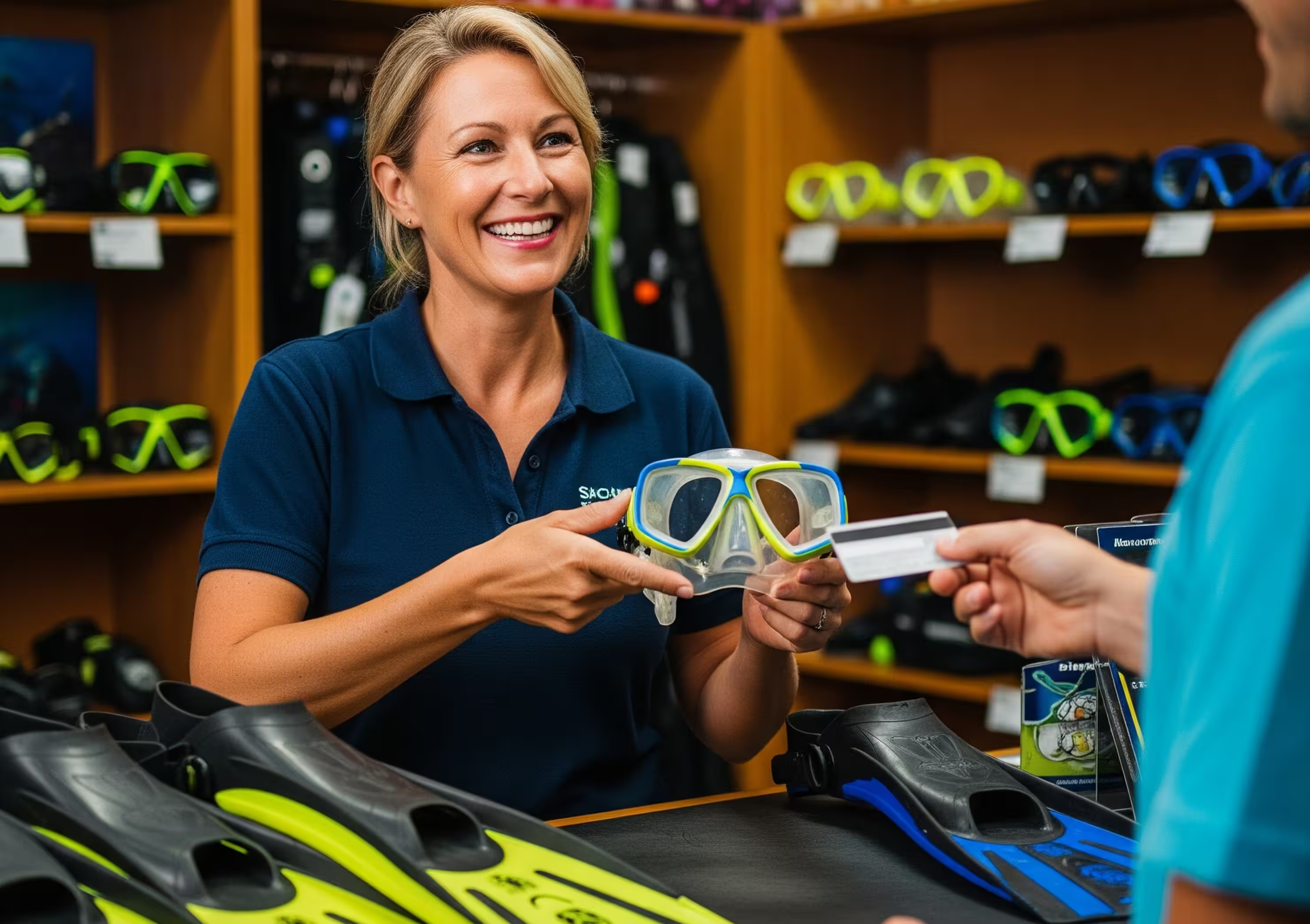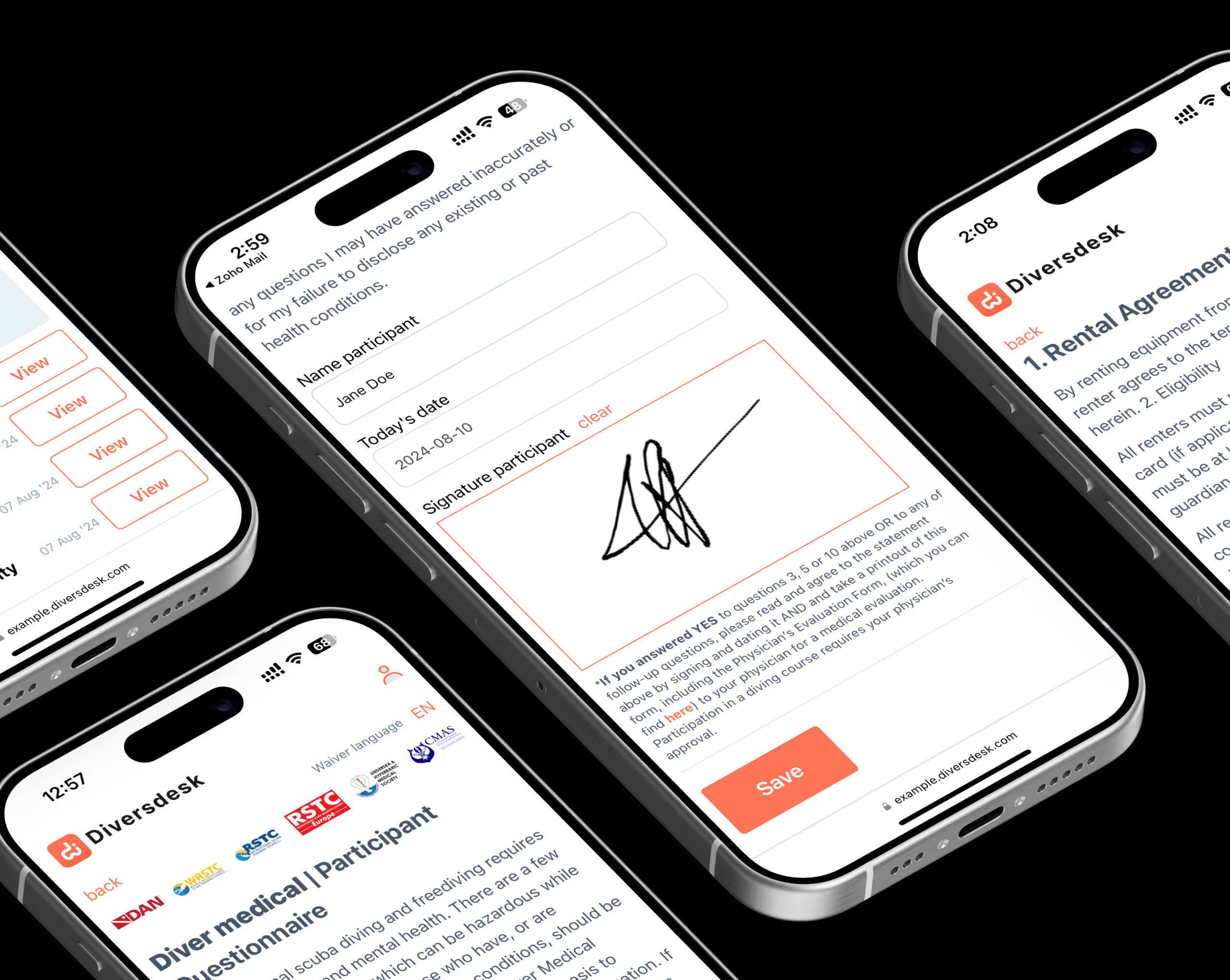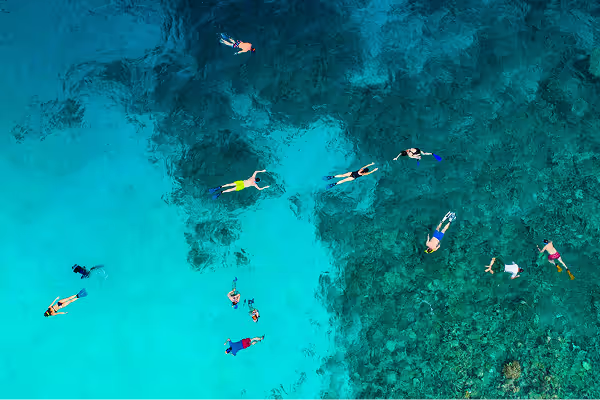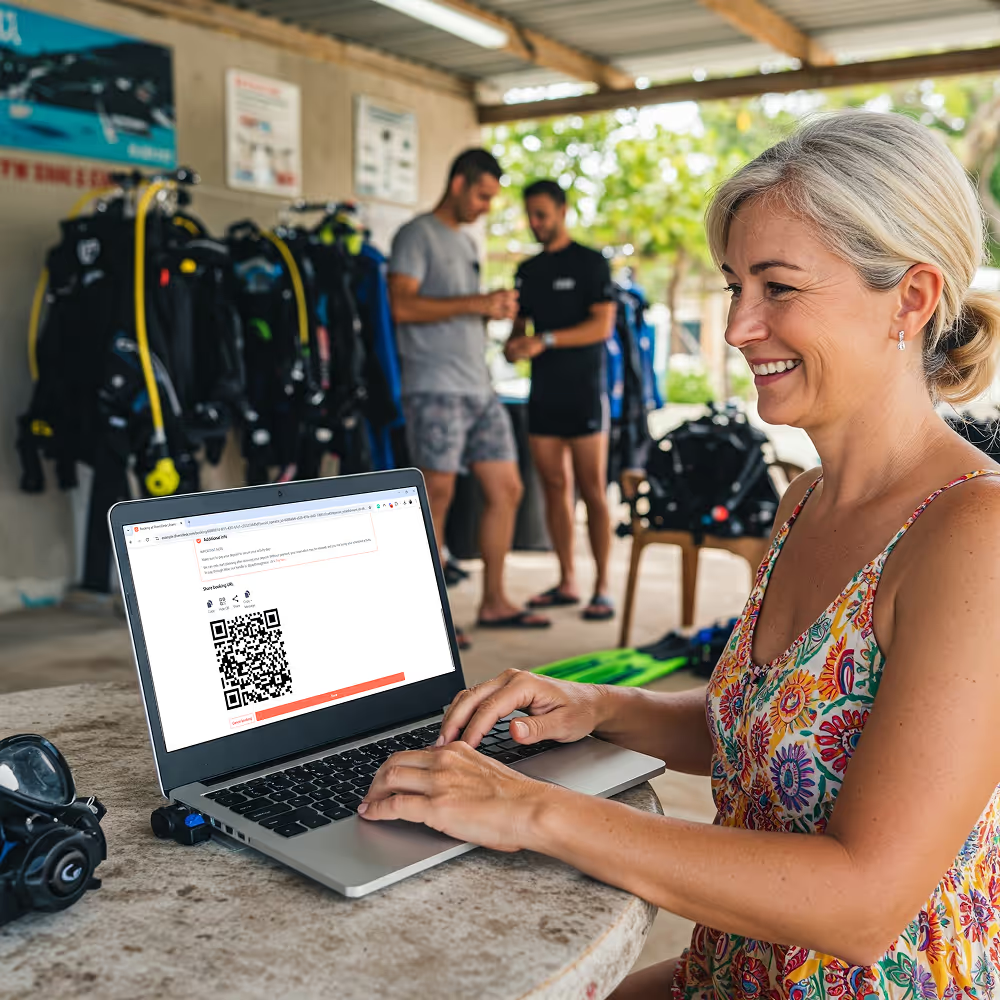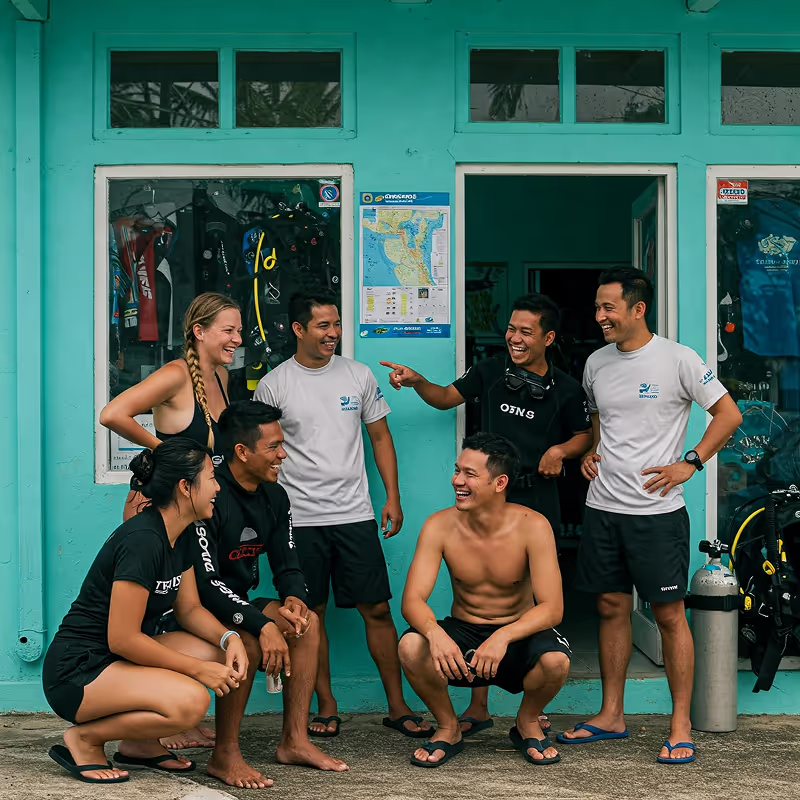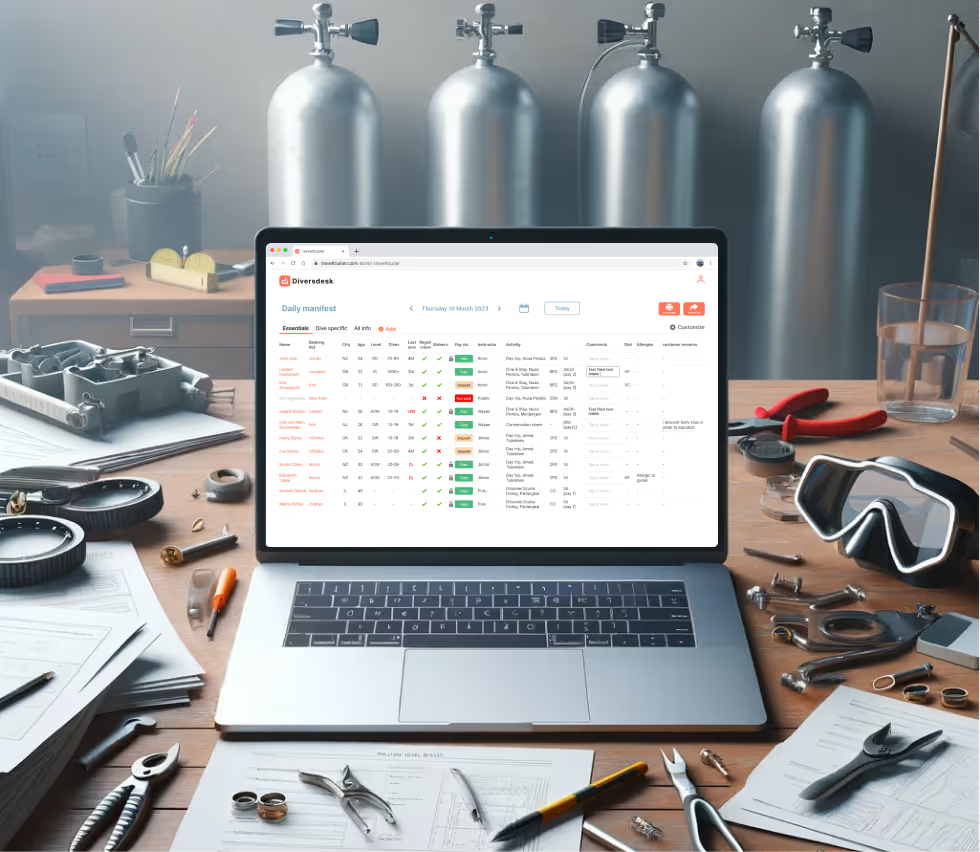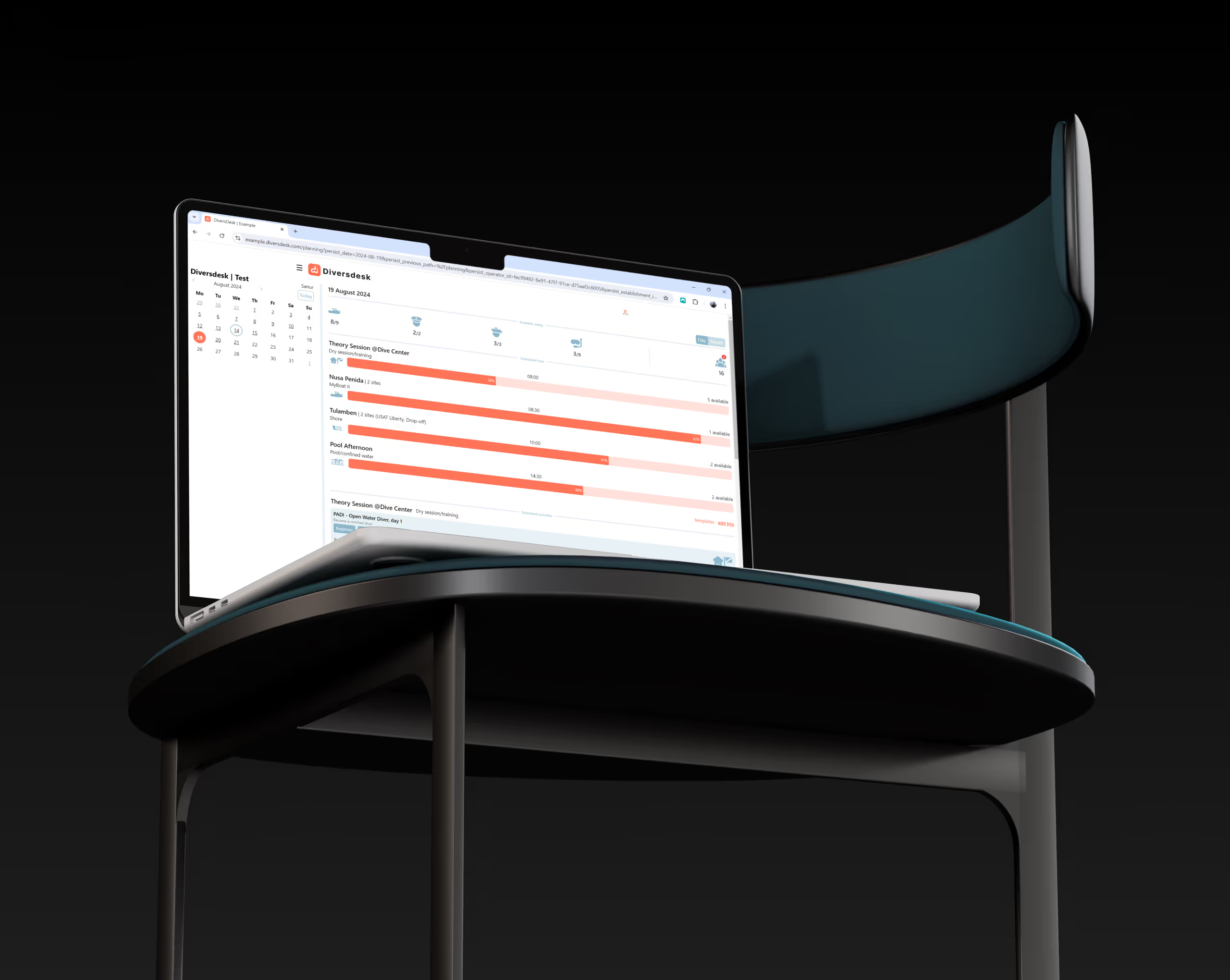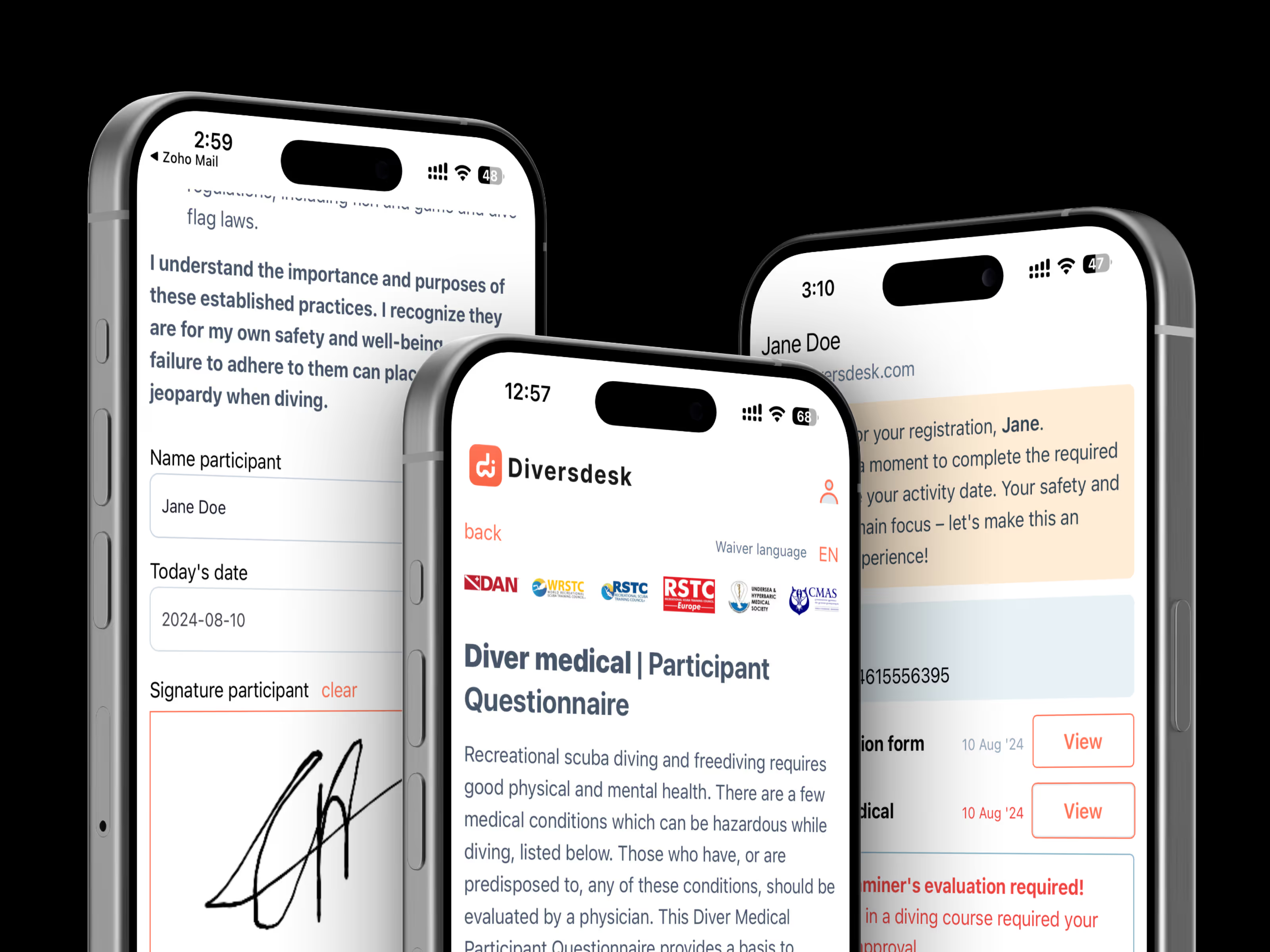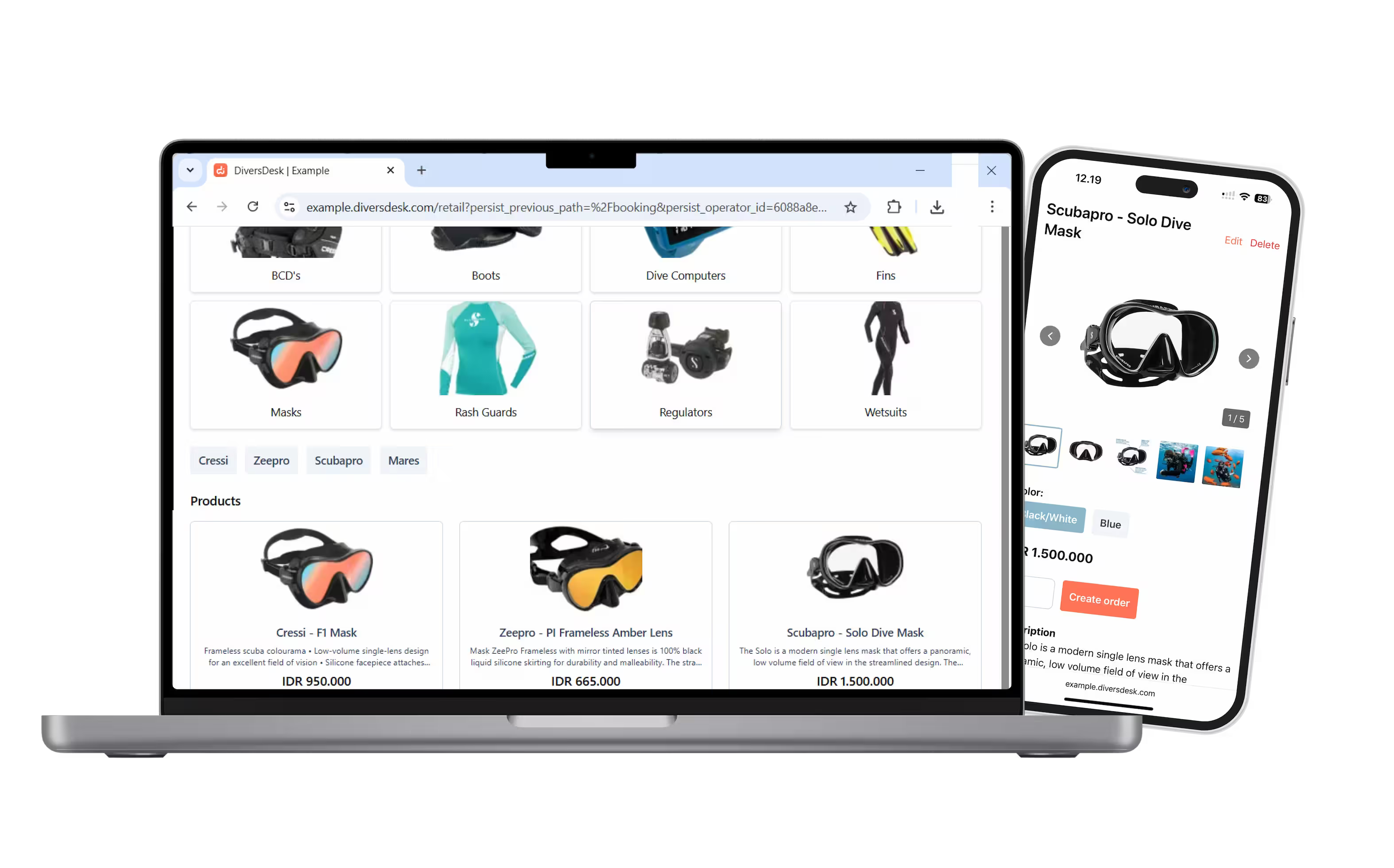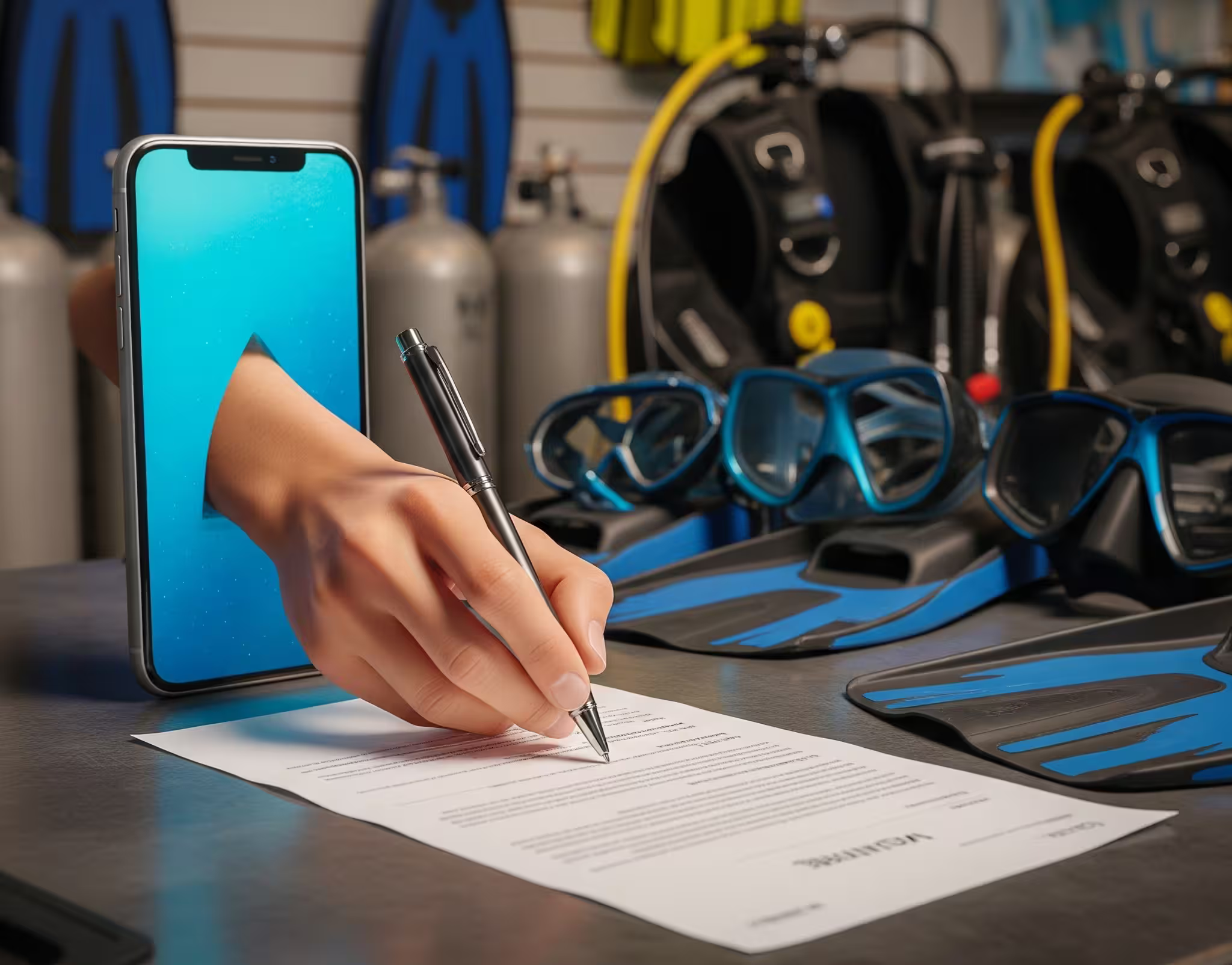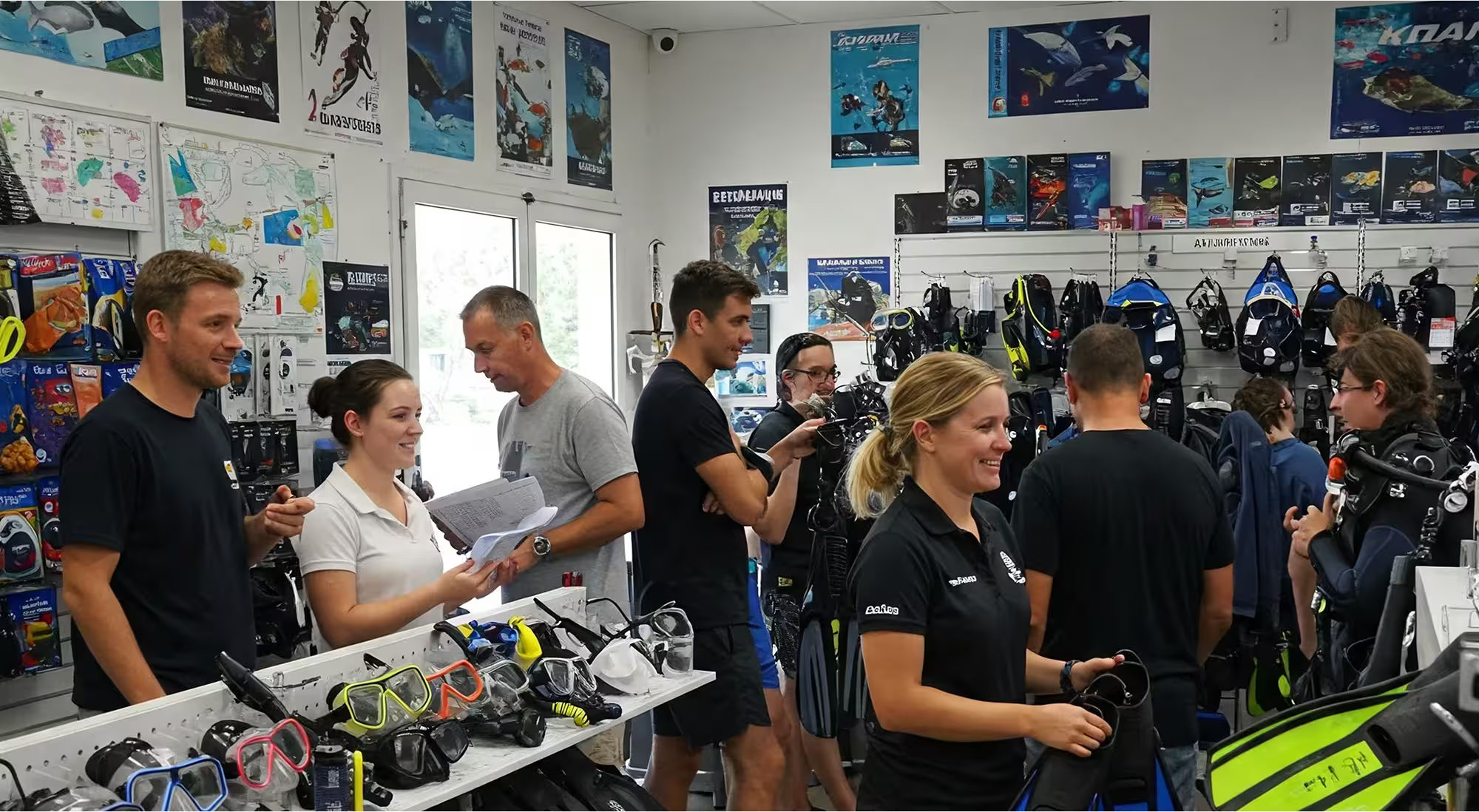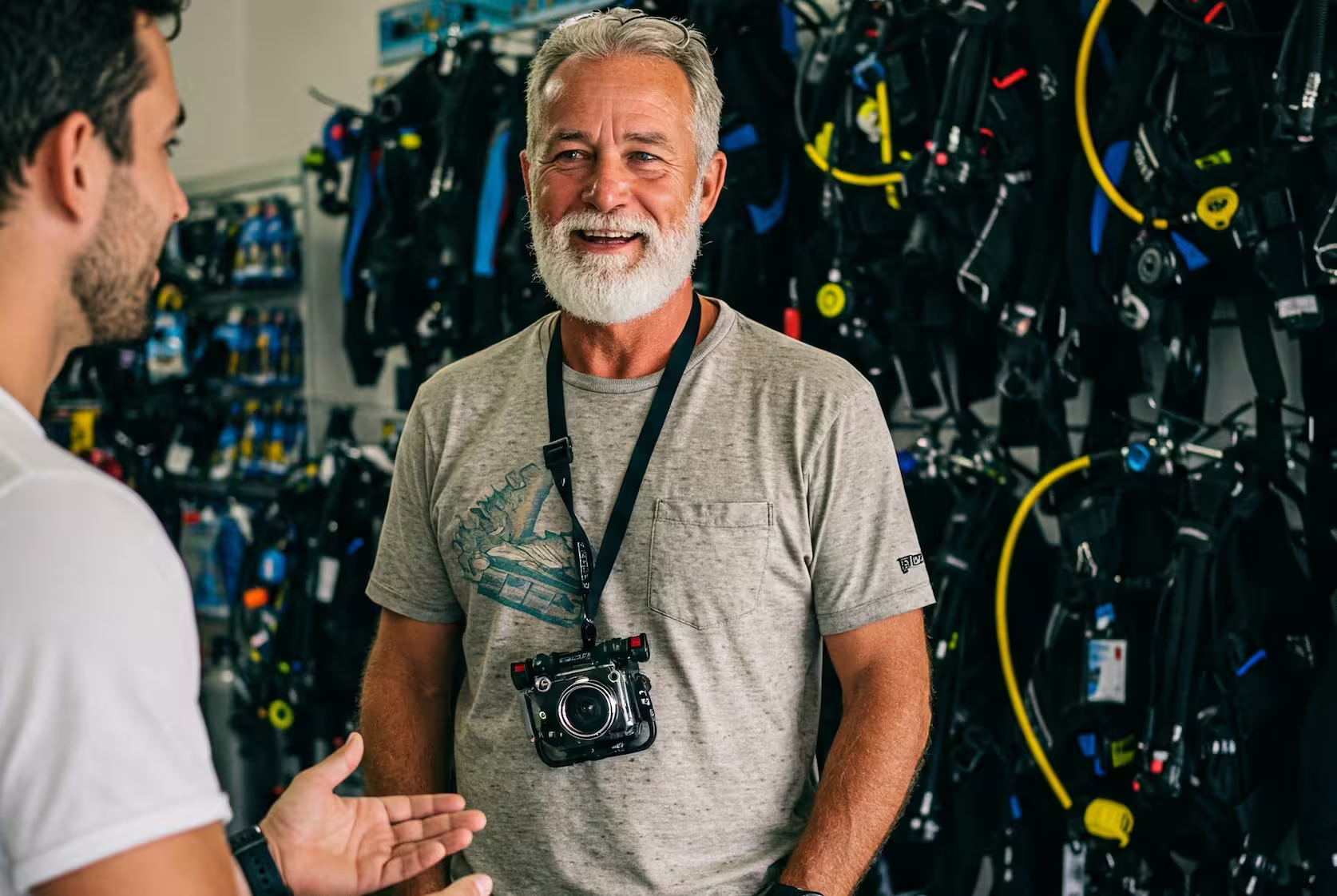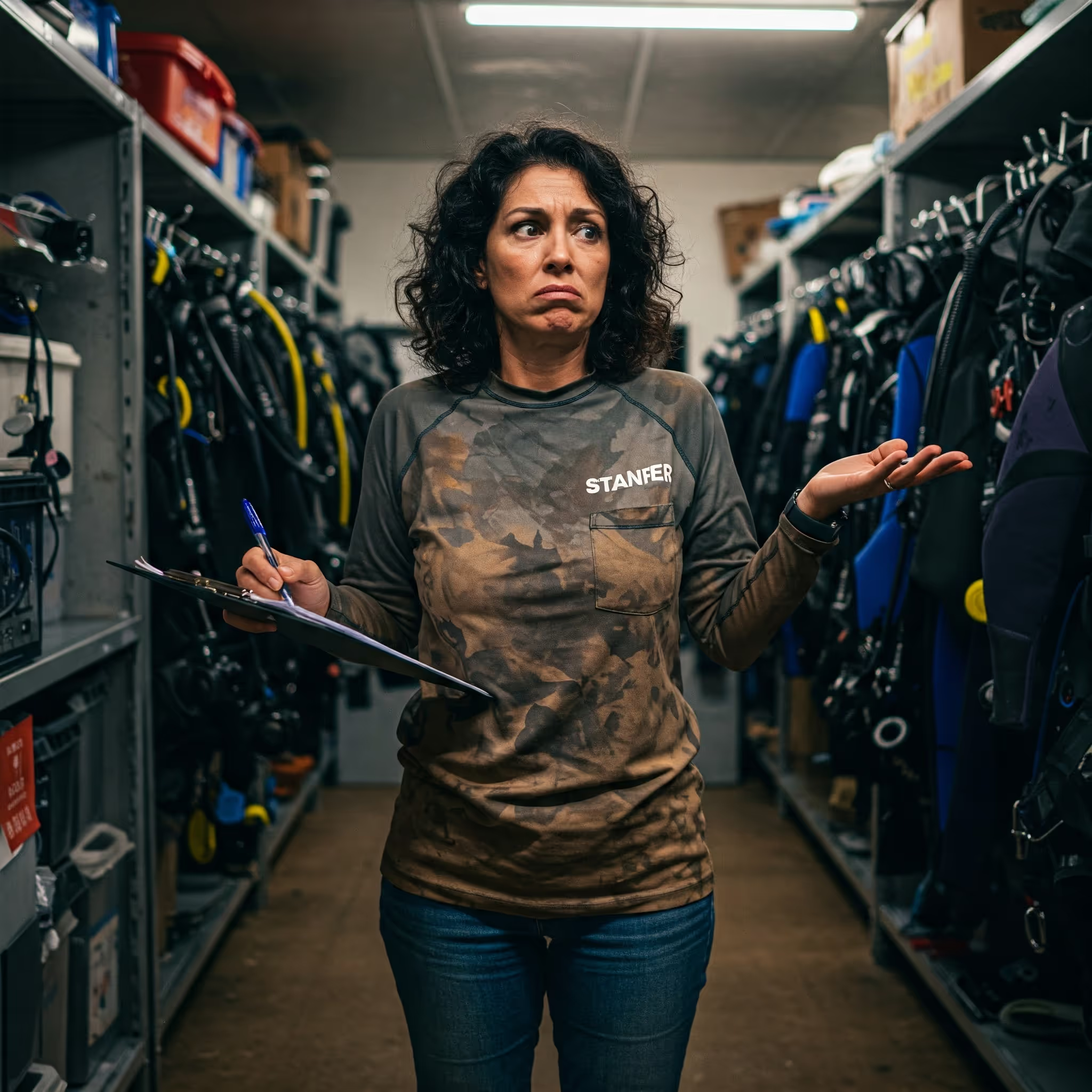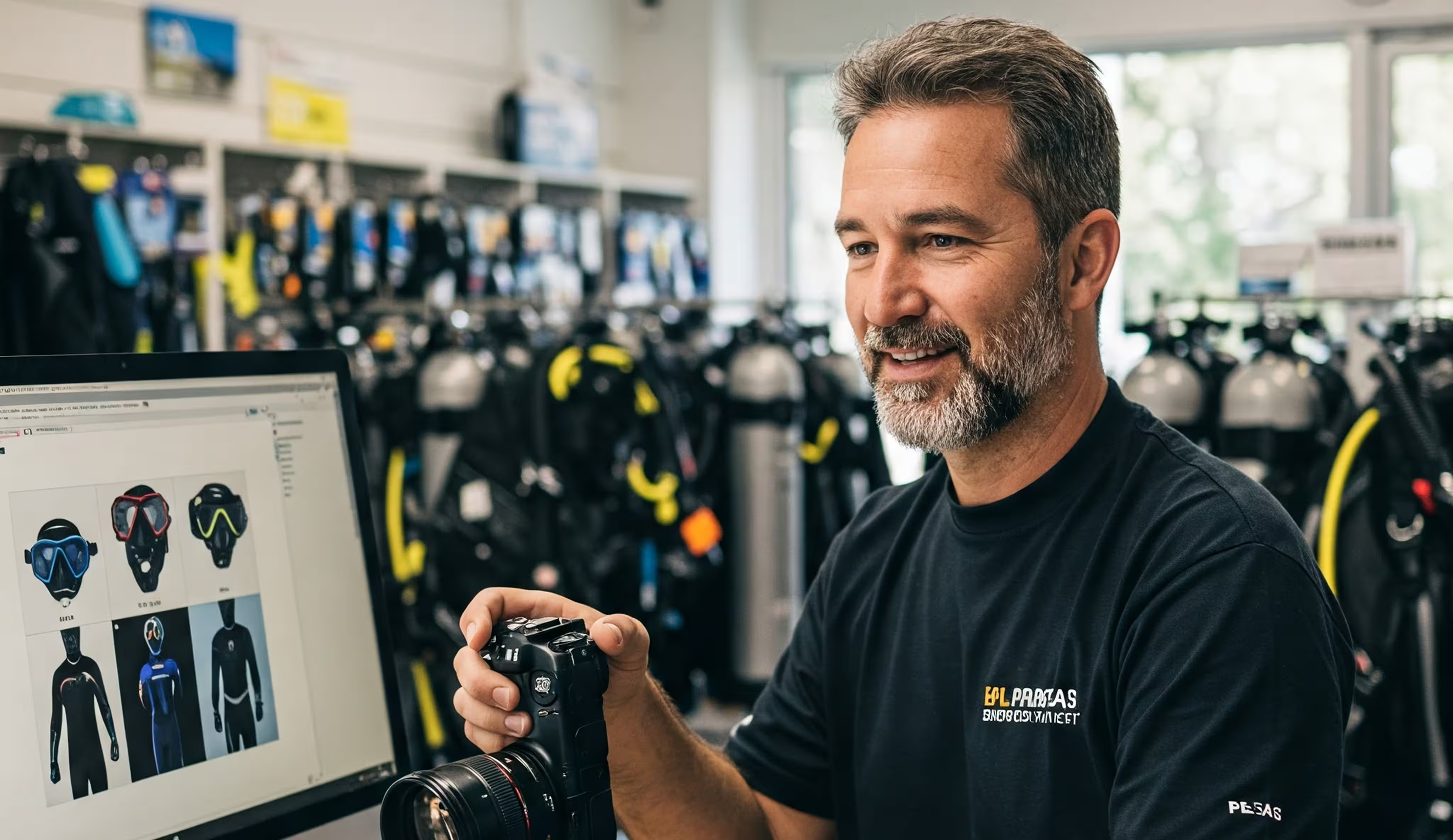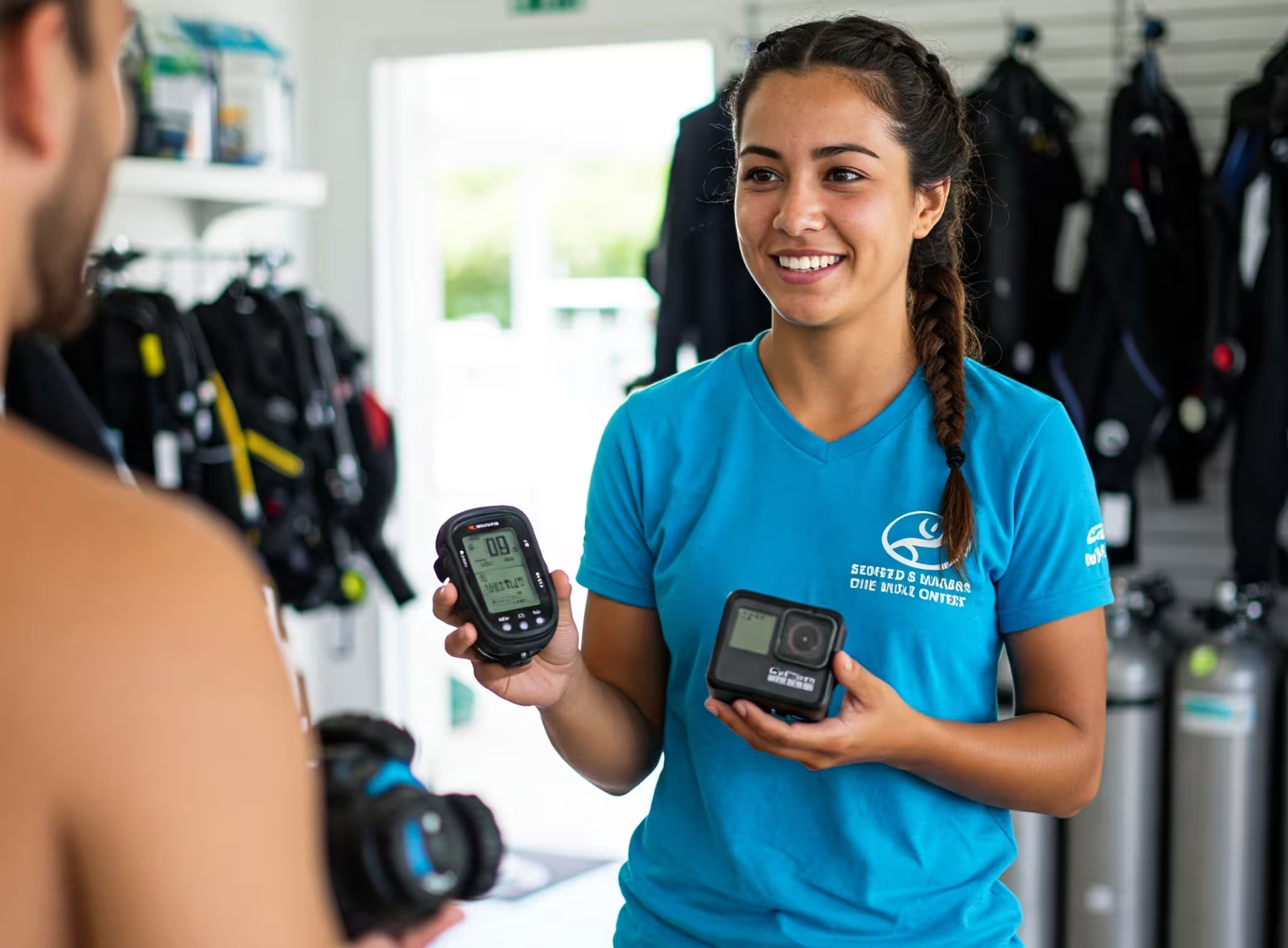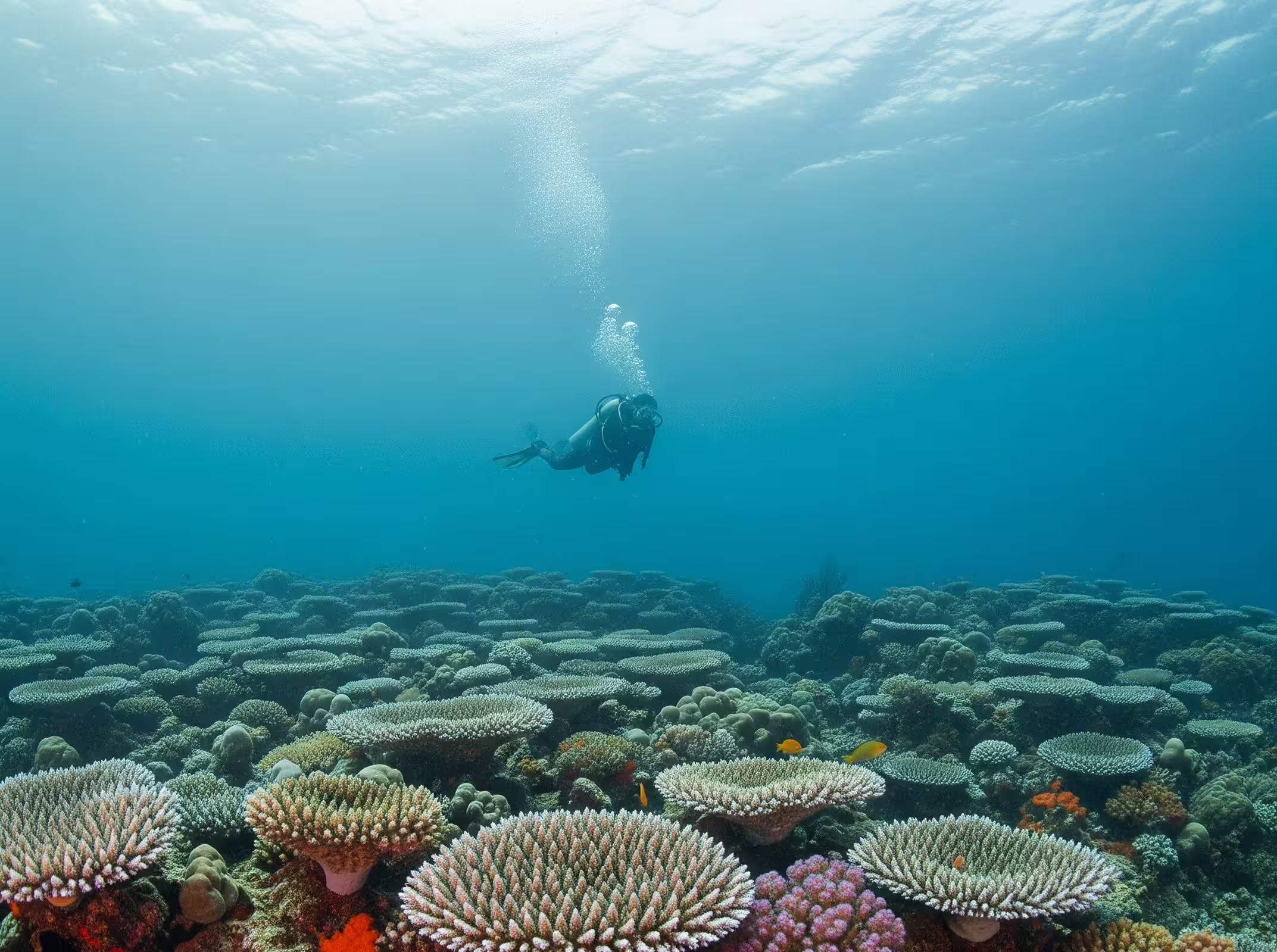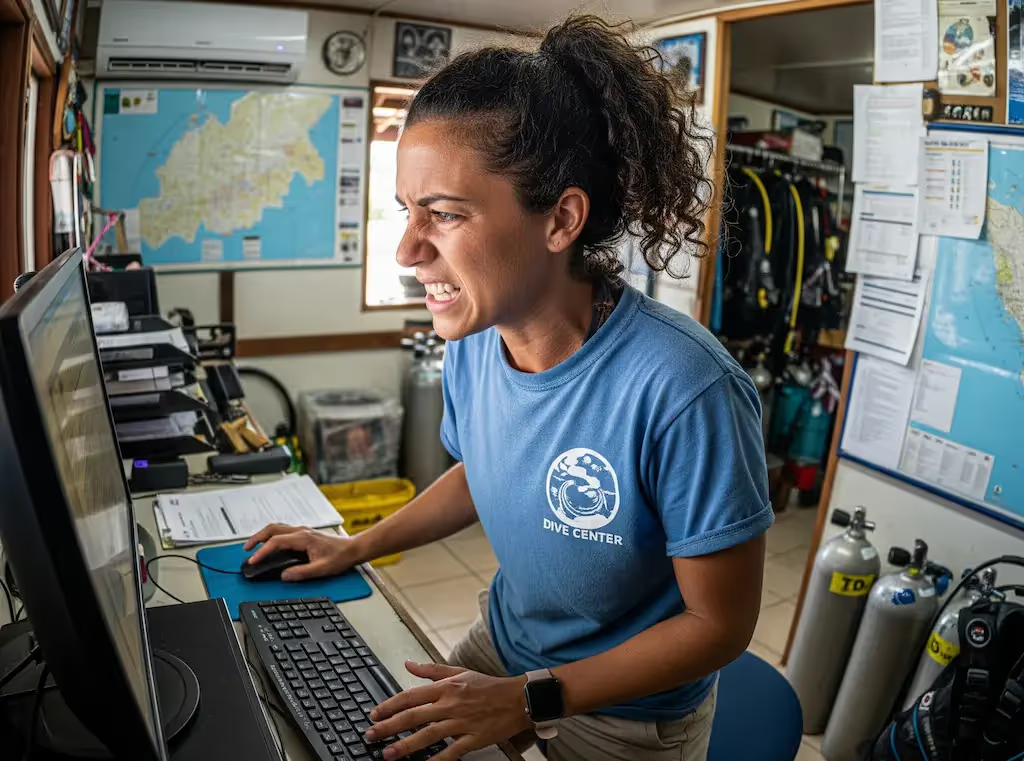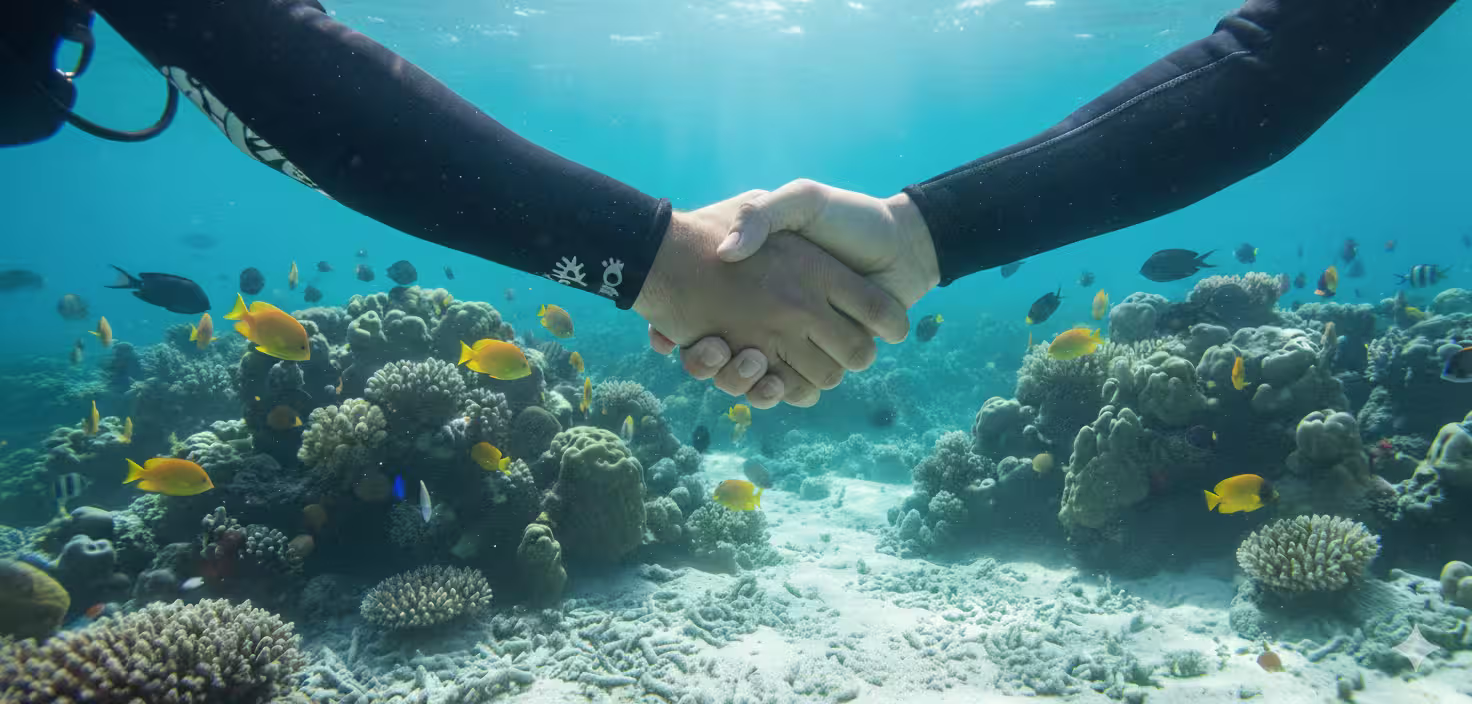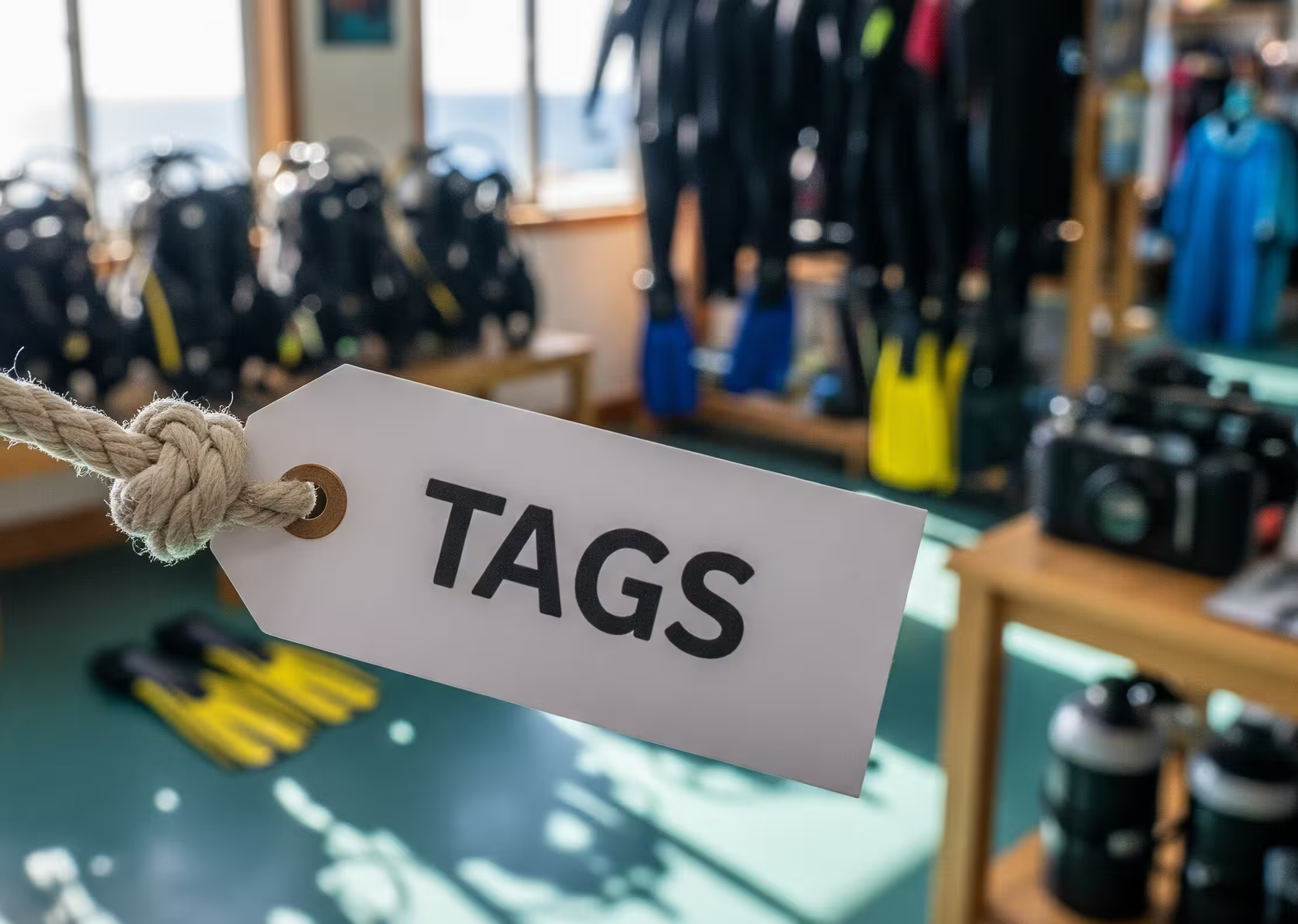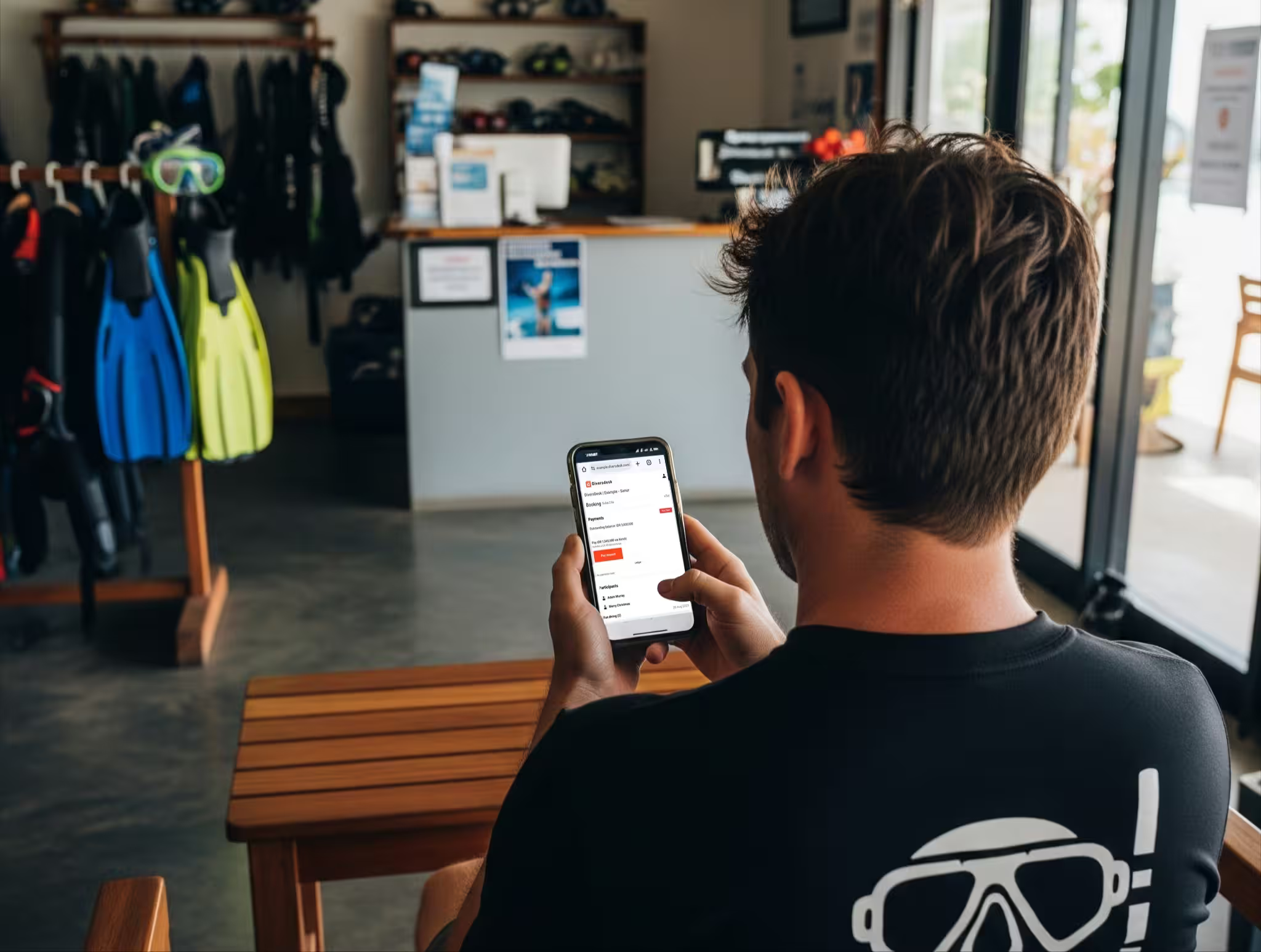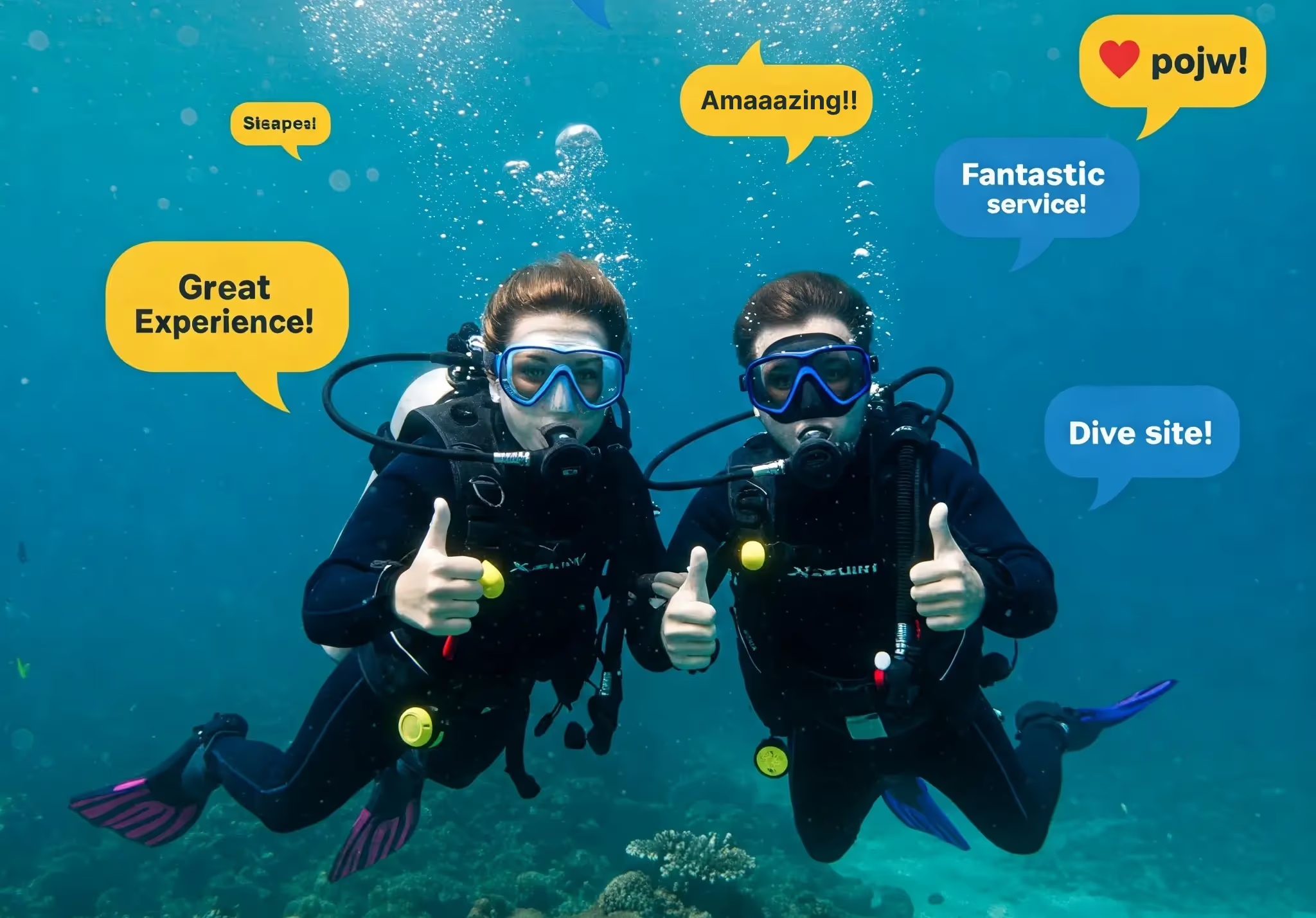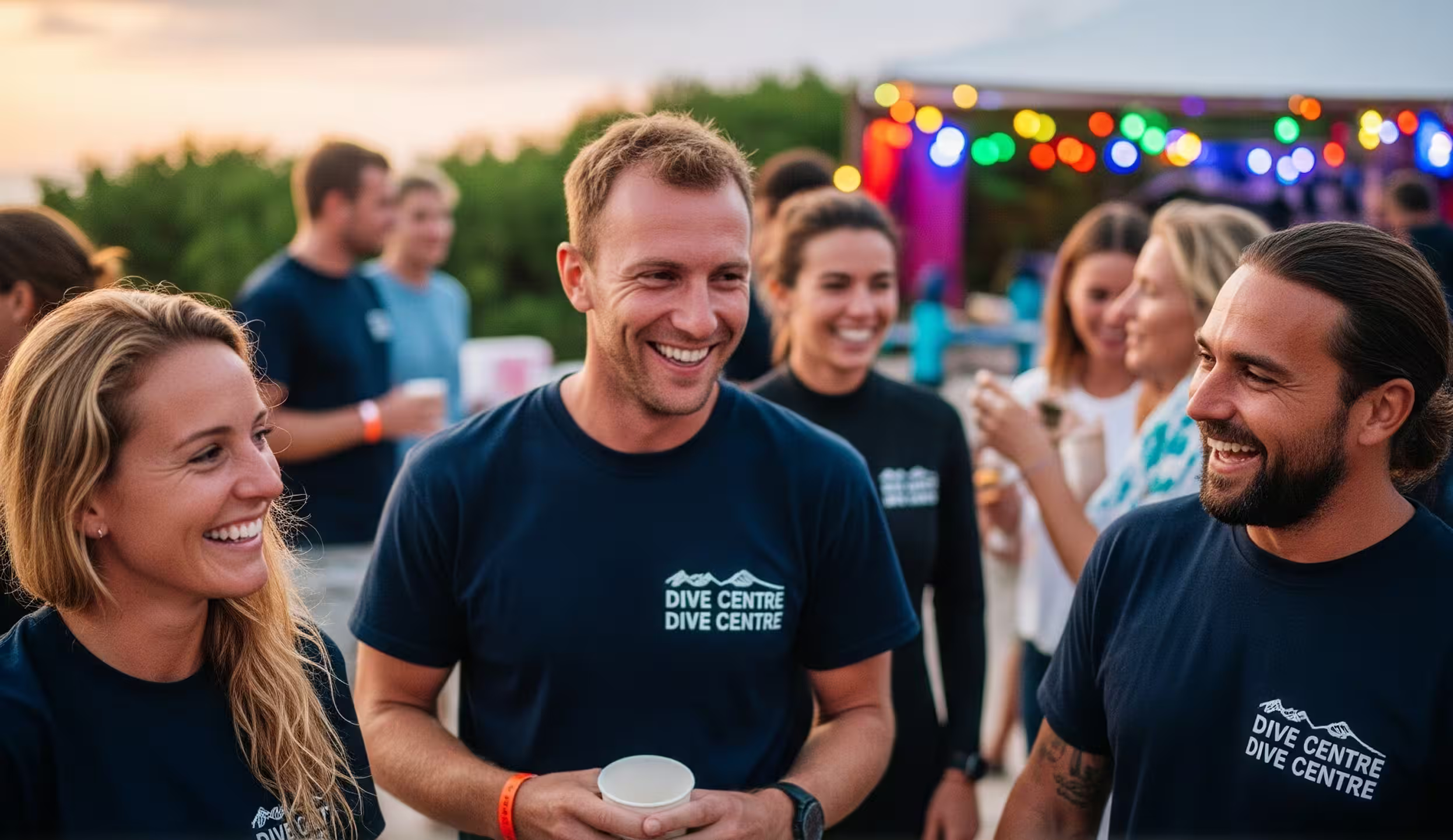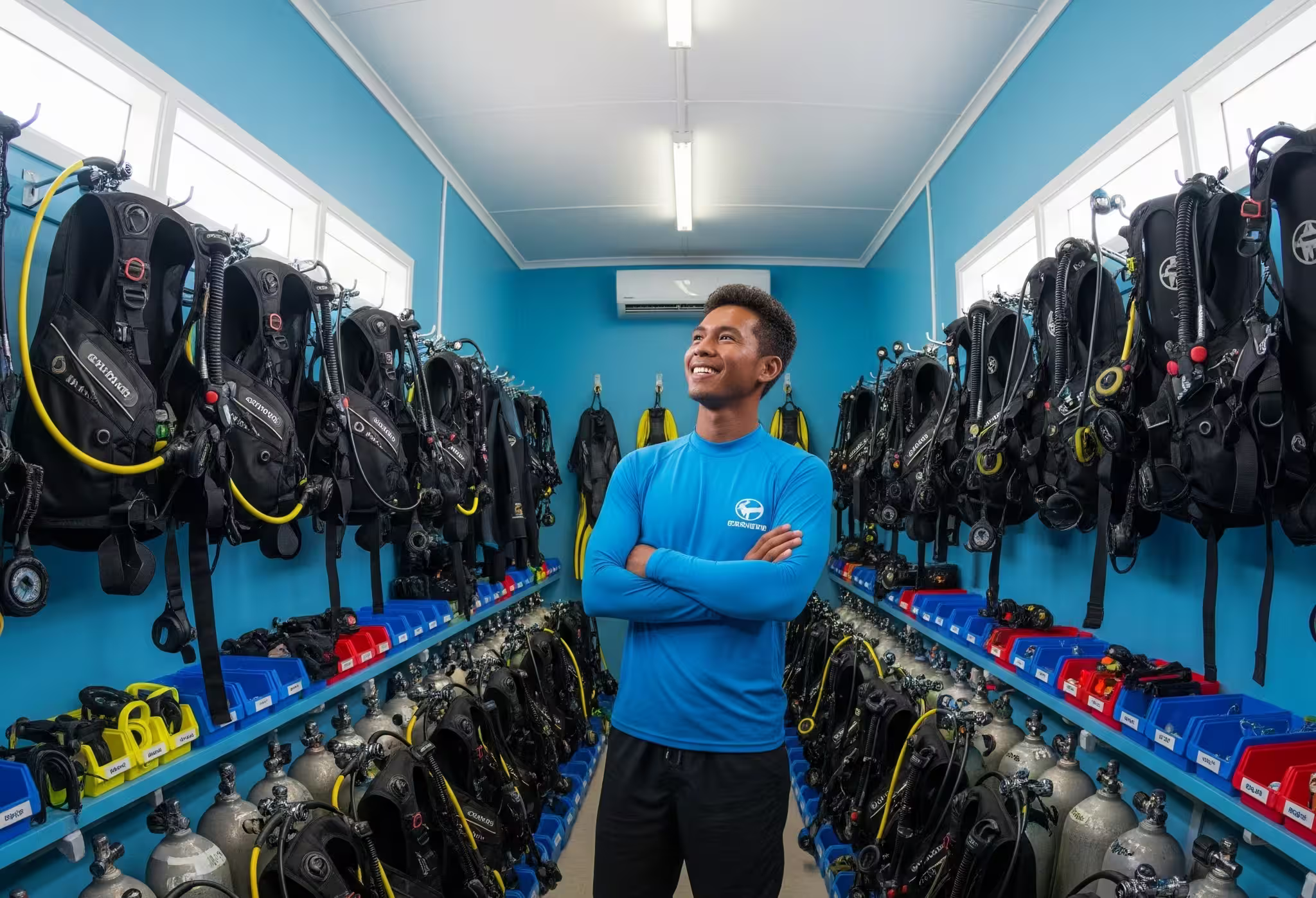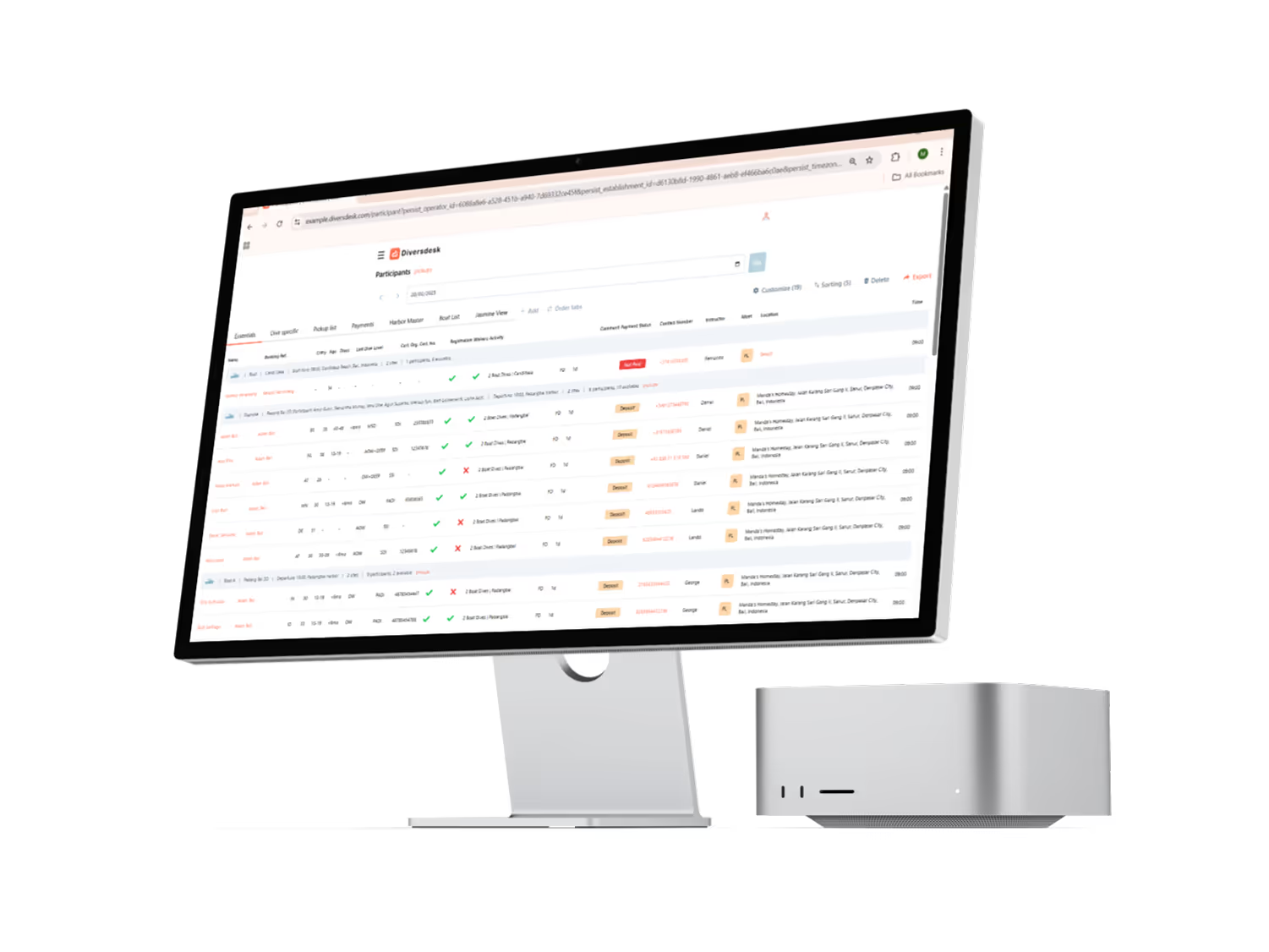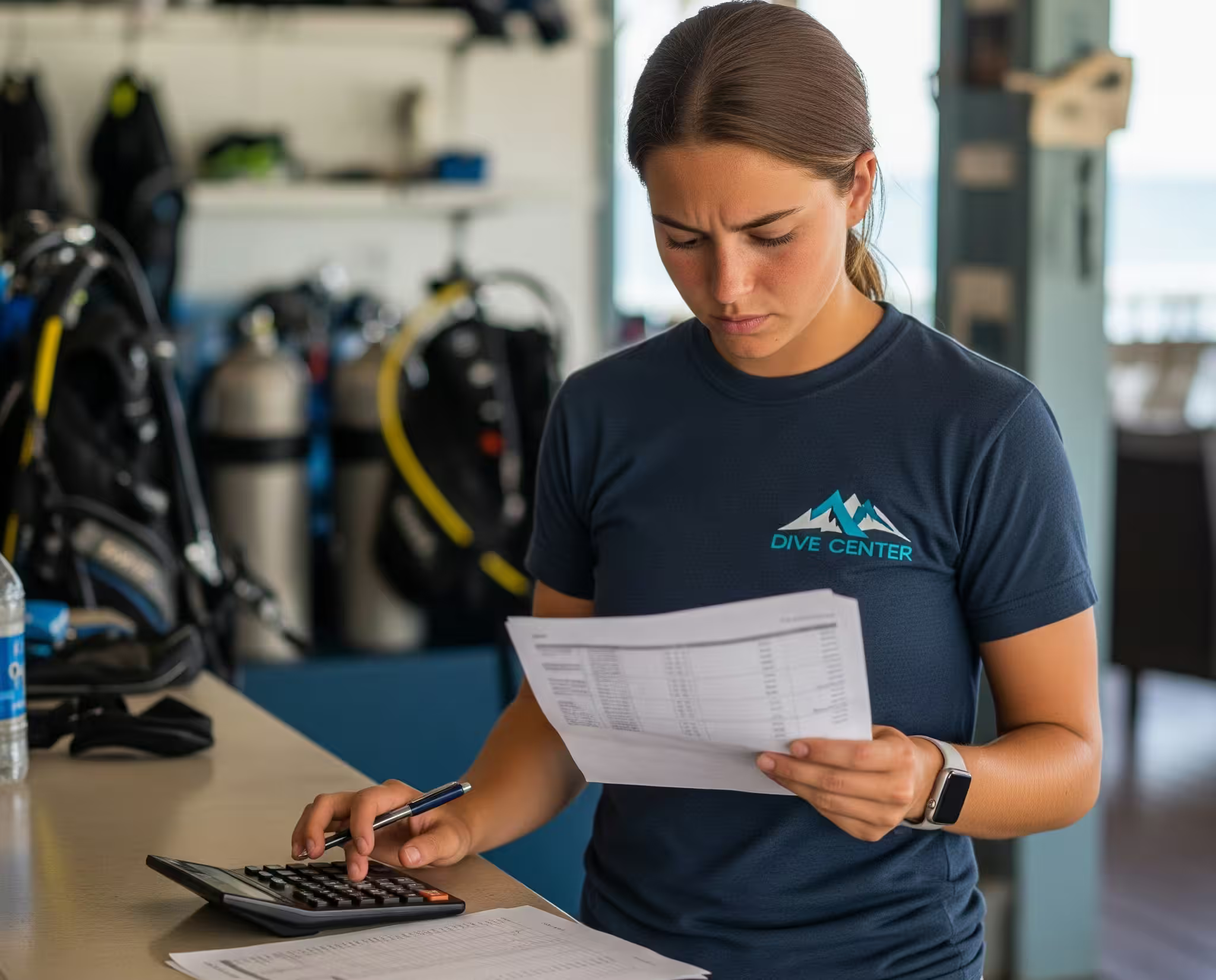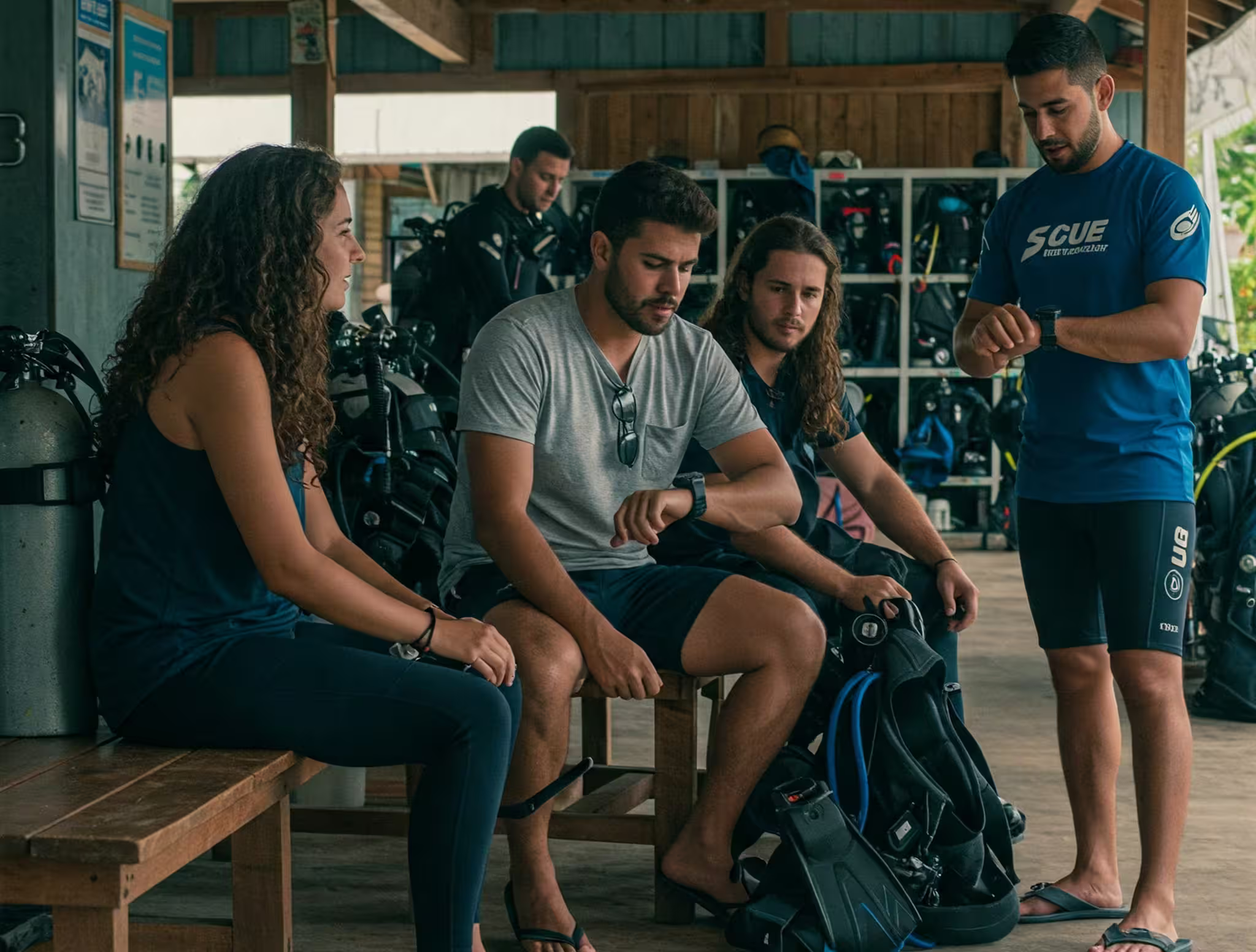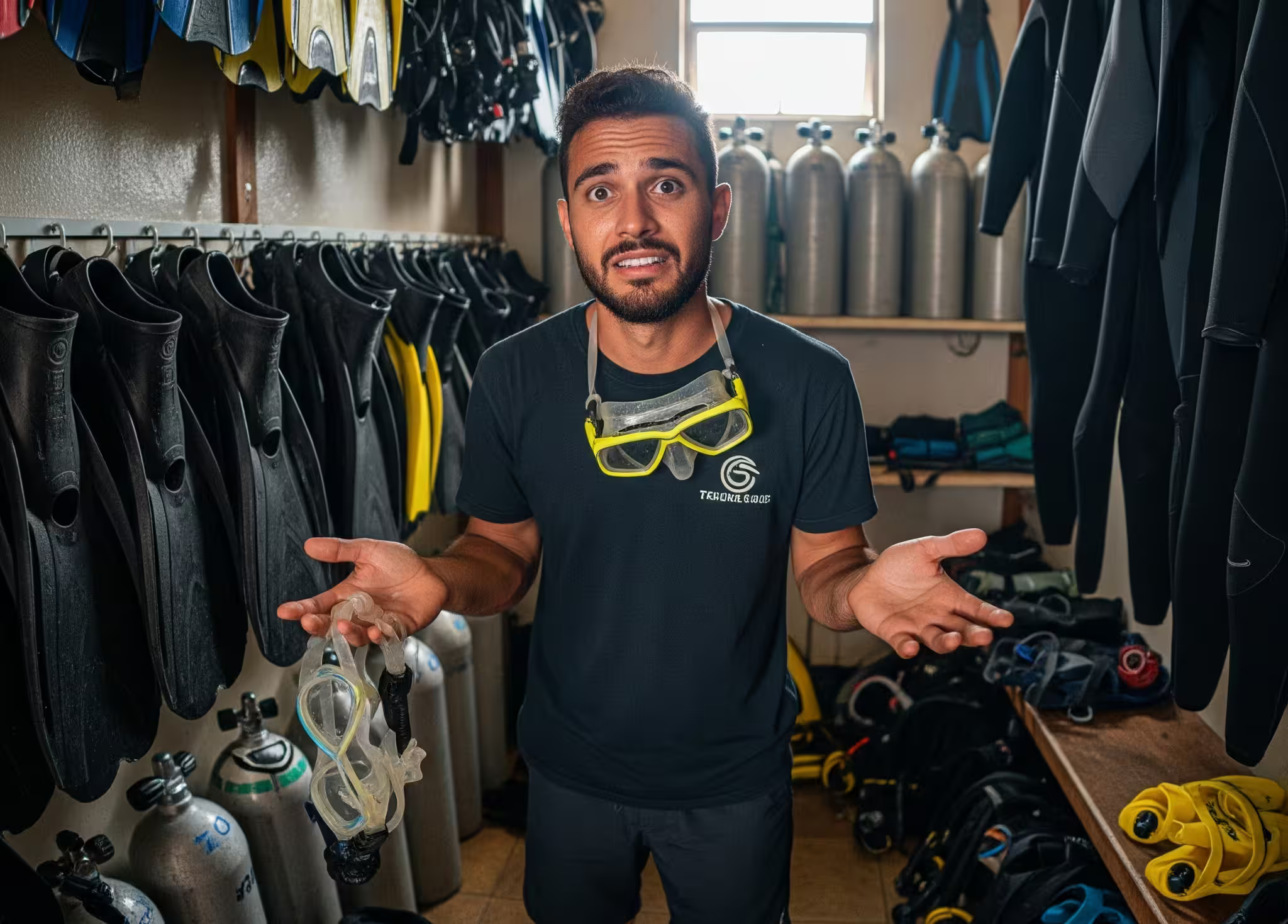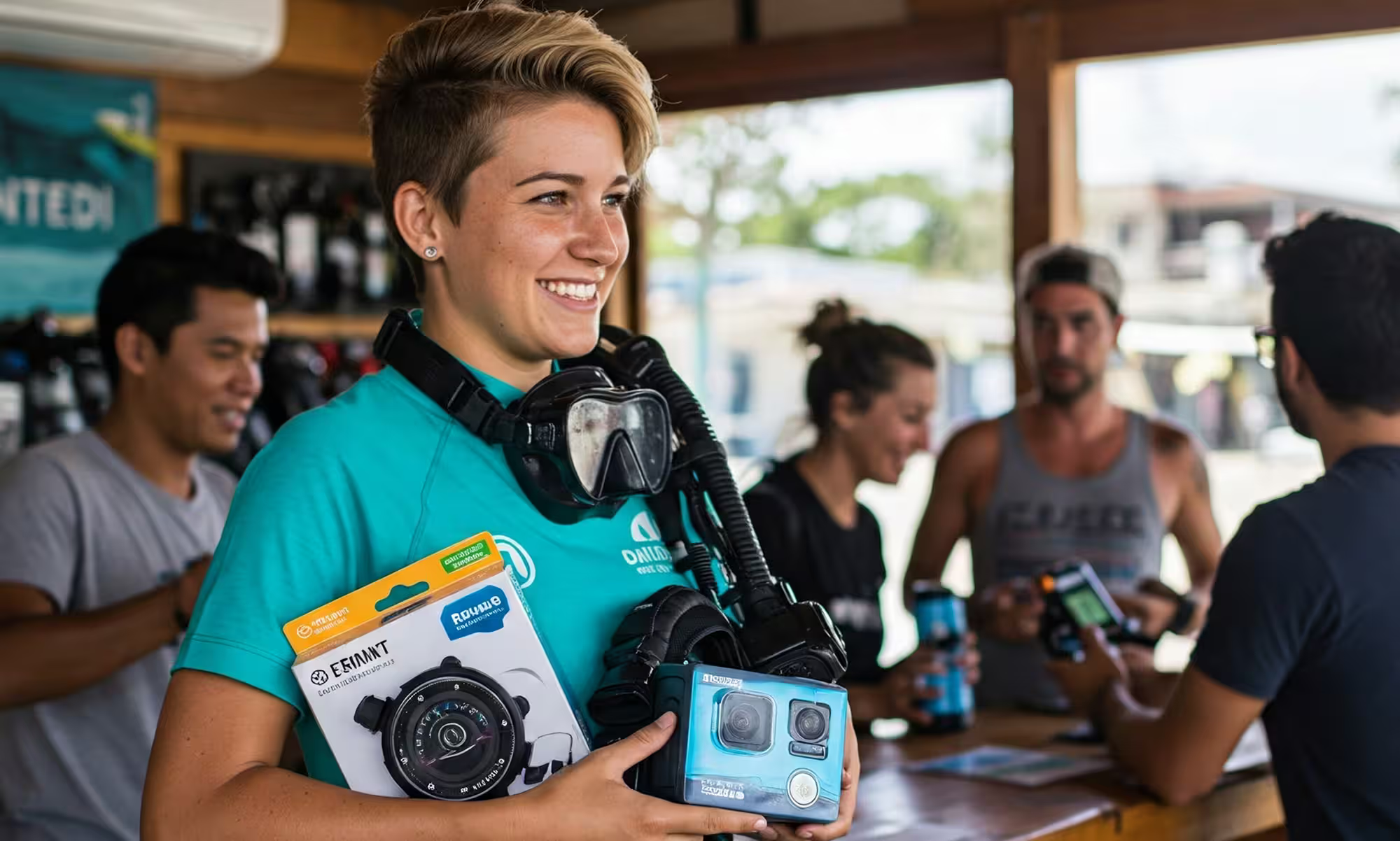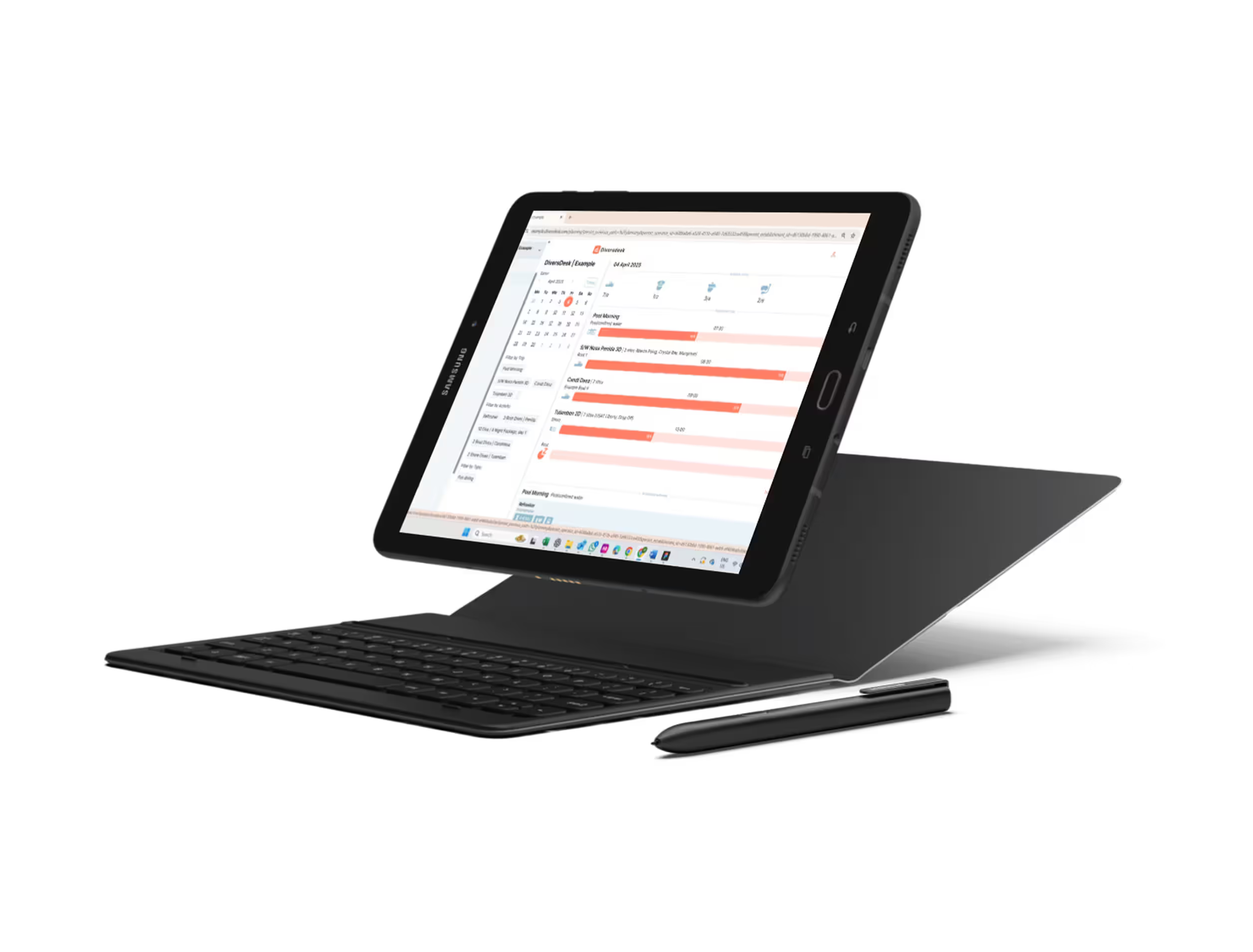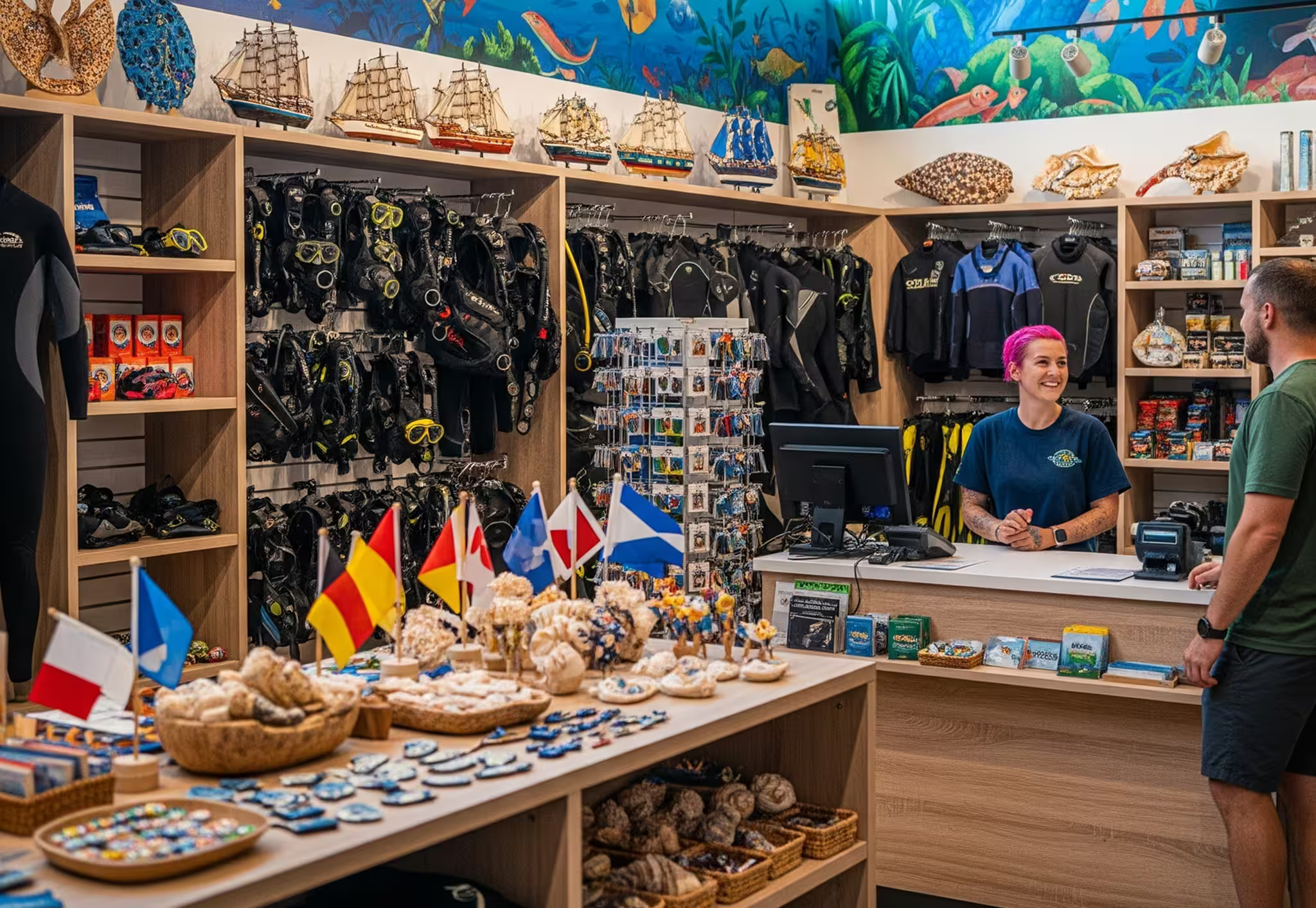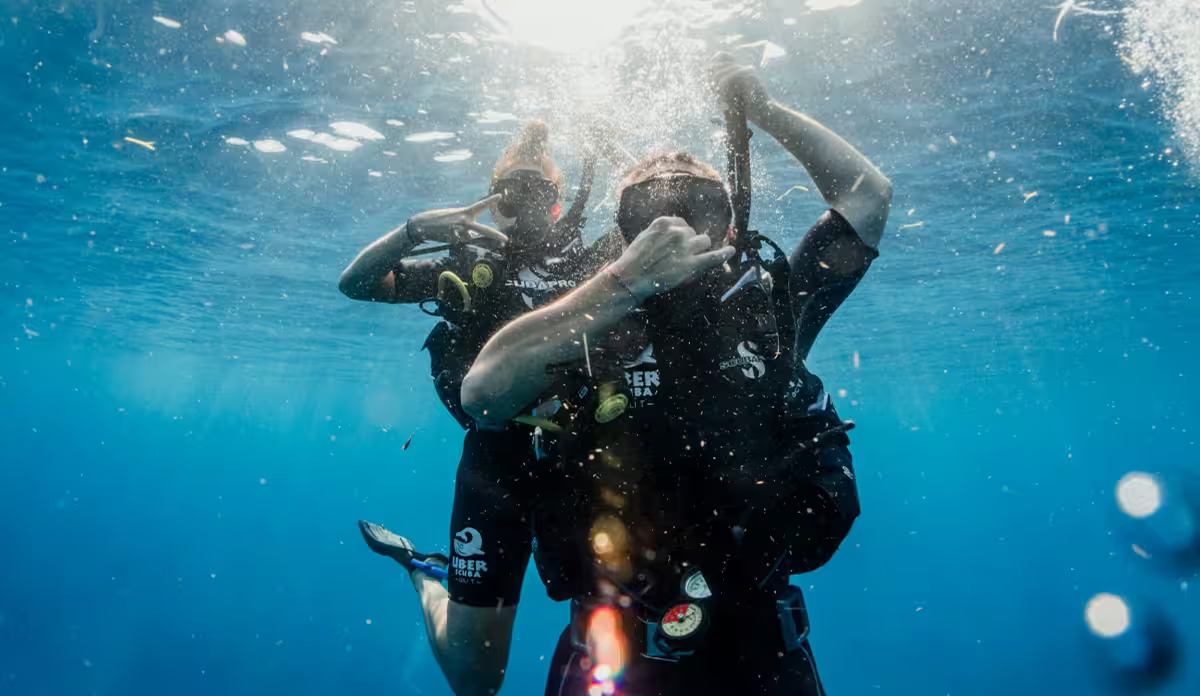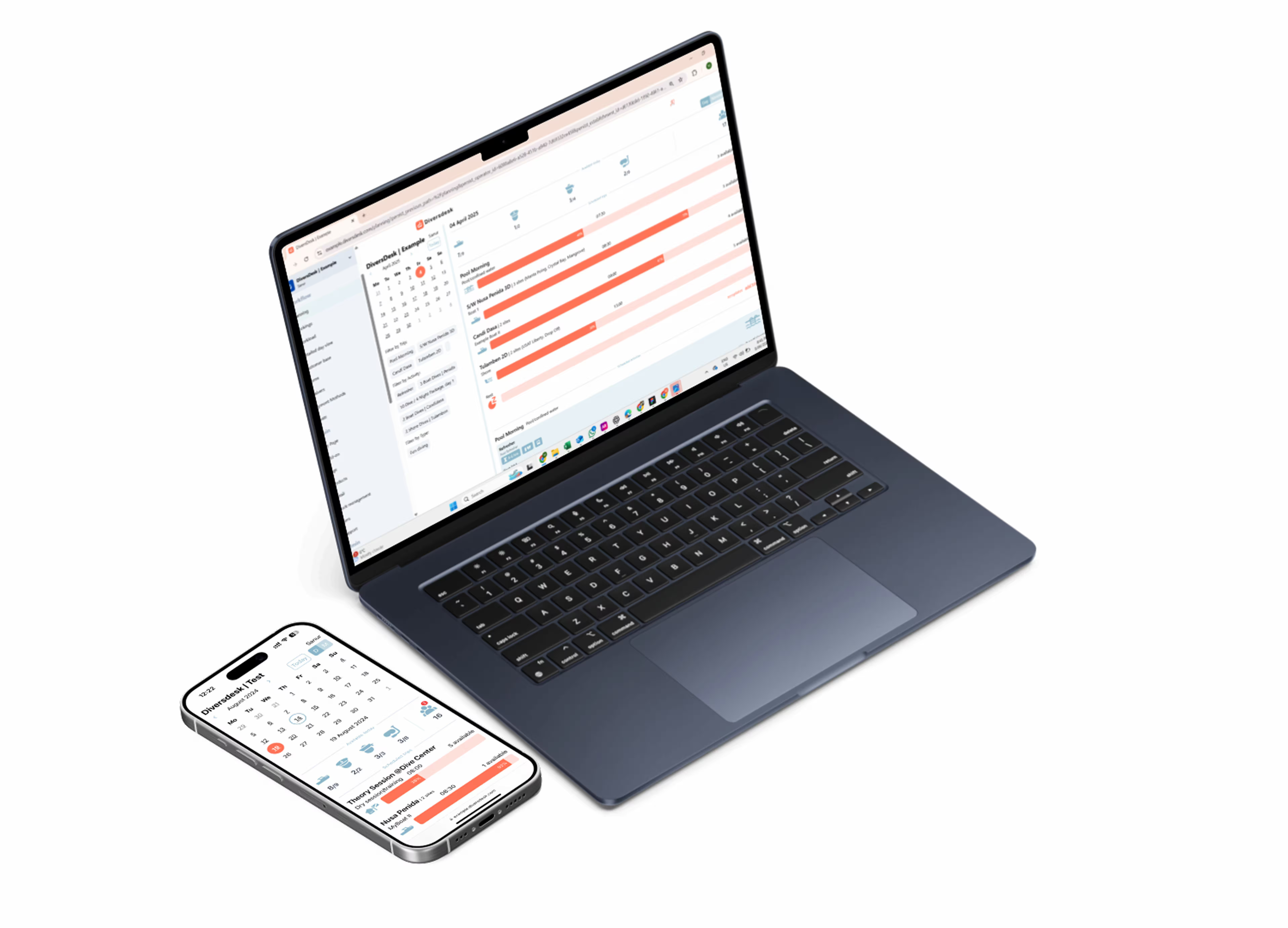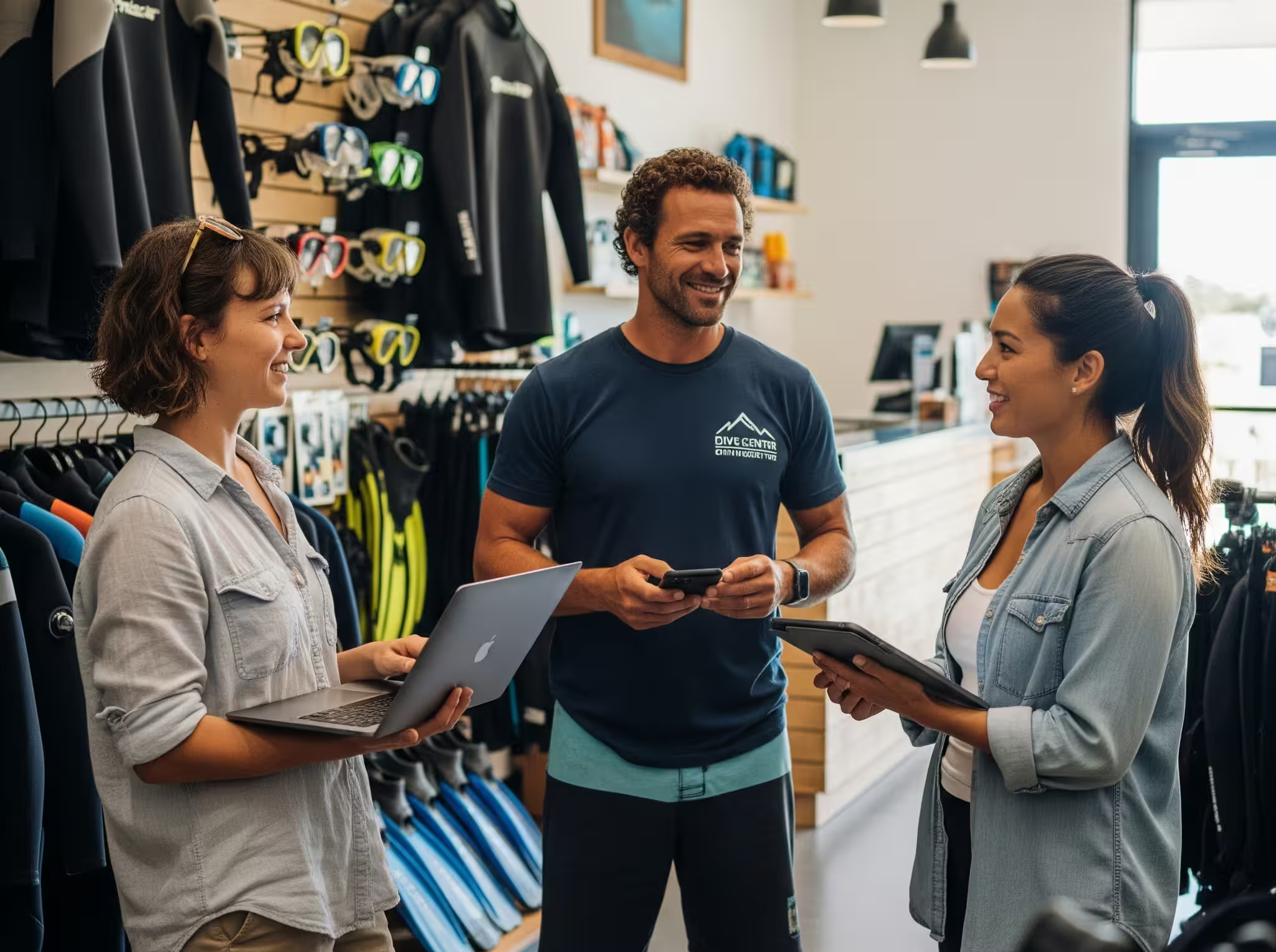Introduction
At Diversdesk, we understand the profound connection you have with marine ecosystems, especially the vibrant and vital coral reefs. This deep appreciation comes with a significant responsibility: to protect these delicate environments for future generations. A critical and **increasingly acknowledged** aspect of this **responsibility for protecting** our seas is the conscious choice of reef-safe sunscreen.
Safeguarding our skin from the sun's powerful UV rays is essential, but a critical concern is emerging: many popular sunscreens are actively harming the marine environments we cherish. This article provides detailed guidance for both dive centers and individual divers on understanding, selecting, and advocating for truly reef-safe sun protection.
The Hidden Threat: Understanding Harmful Sunscreen Chemicals
Traditional sunscreens, while effective for human skin protection, frequently contain chemical compounds that are highly toxic to coral reefs and other marine organisms. These chemicals enter the ocean as they wash off our bodies during swimming, snorkeling, or even showering, severely disrupting the delicate marine balance.
Alarmingly, it's estimated that approximately 14,000 tons of sunscreen wash into the ocean annually. This substantial volume is particularly damaging as it tends to concentrate in popular tourist hotspots where diving, snorkeling, and swimming activities are most **common**. This concentration places immense stress on coral reefs already vulnerable to global challenges like climate change and wider pollution.
The main chemicals to watch out for, as they're known to damage coral reefs, include:
- Oxybenzone (Benzophenone-3): This is a major offender, directly associated with coral bleaching, DNA damage, and disrupted coral reproduction.
- Octinoxate (Octyl Methoxycinnamate): Another widespread chemical UV filter contributing to coral bleaching. Both oxybenzone and octinoxate have been banned in regions like Hawaii, Palau, Bonaire, and Aruba due to their documented harm.
- Octocrylene: This chemical has been found to accumulate in marine organisms and can exert toxic effects.
- Homosalate: A chemical UV filter that can disrupt marine ecosystems.
- 4-Methylbenzylidene Camphor (4-MBC): Banned in certain regions due to its environmental impact.
- PABA (Para-aminobenzoic acid): Listed on the "Harmful to the Environment List" (HEL List).
- Parabens (Methyl Paraben, Ethyl Paraben, Propylparaben, Butyl Paraben, Benzyl Paraben): Primarily preservatives, but some studies indicate potential endocrine-disrupting effects on marine organisms.
- Triclosan: An antibacterial agent confirmed to be detrimental to marine life.
- Nano-particles: These are microscopic particles (smaller than 100 nanometres) of mineral ingredients that can be ingested by marine life, potentially causing harm. Indeed, nano zinc oxide is potentially more harmful to coral than oxybenzone.
These ingredients collectively contribute to coral bleaching, interfere with reproduction, lead to deformities, and can ultimately cause coral death. They also impact fish health, inhibit the growth of algae (a fundamental part of the marine food web), and can accumulate in marine mammals.
Defining 'Reef-Safe': What to Look For (and Why the Label Can Be Misleading)
Given the pervasive threat, how can one ensure their sunscreen choice is genuinely protective of marine environments? The most effective and genuinely reef-safe sunscreens are **mineral-based**. Unlike chemical sunscreens that absorb UV light and convert it into heat, mineral sunscreens create a physical barrier on the skin that reflects UV rays.
The critical active ingredients to seek out on product labels are:
- Non-nano Zinc Oxide.
- Non-nano Titanium Dioxide.
The "non-nano" distinction is crucial: these larger particles are less likely to be ingested by corals or other marine organisms compared to their nano-sized counterparts.
It's paramount to understand that the terms "reef-safe" or "reef-friendly" are currently unregulated marketing terms. This means a product can carry such a label even if it contains some harmful ingredients, particularly if they are nano-sized. Consequently, always diligently check the ingredient list yourself to ensure none of the harmful chemicals listed above are present, and specifically look for "non-nano" mineral filters.
Optimising Sun Protection: Application and Alternatives
Making the transition to reef-safe sunscreen is a straightforward process. Here are some essential guidelines for both divers and consumers:
- Scrutinise the Label: As iterated, verify that **non-nano zinc oxide and/or titanium dioxide** are the active ingredients and that none of the harmful chemicals are present.
- Apply Generously and in Advance: Don't apply sparingly! Ensure comprehensive coverage of all exposed skin. Apply sunscreen at least 15-30 minutes prior to entering the water. This allows the product to bind effectively to your skin, significantly reducing the amount that washes off into the marine environment. It's important to note that applying toxic sunscreen in advance of entering the water makes no difference to its environmental impact.
- Reapply Consistently: Even water-resistant sunscreens diminish in effectiveness over time. Reapply every two hours, or more frequently if swimming, sweating profusely, or towel-drying.
- Prefer Lotions or Sticks: Aerosol sprays often contain harmful propellants, and their ingredients can be made more soluble, increasing wash-off risk and potential harm if inhaled. Creams, lotions, and sticks offer superior application control.
- Consider Alternative Sun Protection: For prolonged exposure to sun or water, supplement sunscreen use with physical barriers. Rash guards, dive skins, or UV-protective clothing provide excellent sun protection without any chemical runoff. Seeking shade during peak sun hours (10 am – 3 pm) is also highly effective.
- SPF Level: SPF 30 is generally recommended for daily use, blocking 97% of UV rays. For extended periods in direct sunlight or during activities like snorkeling and diving, SPF 50 is a prudent choice, blocking 98% of UV rays. Higher SPF offers minimal additional protection.
A Curated Selection: Recommended Reef-Safe Sunscreen Options
The good news is that the market for genuinely reef-safe sunscreen is expanding! Here are some brands and products that use mineral-based, non-nano ingredients and come highly recommended:
Top 5 Sunscreens for Coral Reefs (Based on Ingredients, Reviews, and Worldwide Availability)
When it comes to protecting both your skin and our precious marine ecosystems, these five sunscreens stand out for their strong commitment to reef-safe ingredients, excellent performance, and good availability.
-
1. Thinksport SPF 50+ Mineral Sunscreen
- Why it's a Top Pick: This brand is a consistent leader in reef-safe sun protection, explicitly using non-nano Zinc Oxide (20%). It's highly praised by outdoor enthusiasts for its robust, water-resistant protection, making it ideal for active days in and around the water.
- Key Features: Non-nano Zinc Oxide, very water-resistant, great for active individuals and families.
- Availability: Widely available globally in health stores and online.
-
2. Badger Daily Mineral Sunscreen SPF 30
- Why it's a Top Pick: A true pioneer in natural and organic sunscreens, Badger uses non-nano Zinc Oxide (19%) and simple, minimal ingredients. It's a favorite for those seeking truly clean and environmentally conscious formulas, known for being gentle on sensitive skin.
- Key Features: Non-nano Zinc Oxide, simple organic ingredients, strong environmental commitment.
- Availability: Good availability in natural food stores and online, especially strong in North America and parts of Europe.
-
3. Raw Elements SPF 30 Certified Natural Sunscreen
- Why it's a Top Pick: Founded by an ocean lifeguard, Raw Elements is designed for serious performance in water. Its high concentration of **non-nano Zinc Oxide (23%)** makes it extremely water-resistant and a go-to for divers, surfers, and anyone spending significant time in the ocean, all while being rigorously reef-safe.
- Key Features: High non-nano Zinc Oxide, exceptional water resistance, designed for extreme conditions.
- Availability: Good availability in outdoor/surf shops and online, globally.
-
4. Stream2Sea SPF 30 Mineral Sunblock
- Why it's a Top Pick: This brand takes reef safety to the next level with some of the most extensive independent testing for aquatic safety, ensuring no harm to fish or coral larvae. It uses **non-nano Zinc Oxide and Titanium Dioxide**, making it a highly trusted choice for environmentally conscious users.
- Key Features: Highly tested for aquatic safety, non-nano minerals, strong environmental credentials.
- Availability: Primarily online, but increasingly found in eco-friendly stores and dive shops worldwide.
-
5. All Good Face & Body Sunscreen Lotion SPF 30 (Mineral)
- Why it's a Top Pick: With **non-nano Zinc Oxide (18.1%)** and a clear commitment to being reef-safe and biodegradable, All Good offers a natural, effective, and gentle formula. It's highly regarded for its skin-friendly ingredients while maintaining excellent sun protection.
- Key Features: Non-nano Zinc Oxide, explicitly reef-safe and biodegradable, gentle formula.
- Availability: Decent availability in health food stores and online, especially in North America.
Other Highly Recommended Reef-Safe Sunscreens
These sunscreens also meet the crucial criteria for reef safety (using only mineral filters and avoiding harmful chemicals) and are highly regarded by users. Their availability, while still good, might be slightly more varied or specific to certain retail channels compared to the top 5, or they might offer slightly different cosmetic finishes.
-
CeraVe Hydrating Mineral Sunscreen SPF 30 Sheer Face Tint
- Why it's great: A widely accessible mineral option (Zinc Oxide, Titanium Dioxide) from a trusted brand known for sensitive skin. The sheer tint helps reduce the white cast, making it very popular for daily facial use.
- Availability: Excellent worldwide.
-
Isdin Eryfotona Actinica Mineral SPF 50+ Sunscreen
- Why it's great: A high-performance mineral sunscreen (Zinc Oxide) known for its elegant, lightweight feel and specific benefits for repairing sun-damaged skin. Often recommended by dermatologists.
- Availability: Good availability in North America, Europe, and parts of Asia.
-
Sun Bum SPF 30/50 (Mineral Line - Oxybenzone-free, Octinoxate-free)
- Why it's great: If you choose their specific "Mineral" or "Reef-Friendly" line, Sun Bum offers a widely available and pleasant-to-use option that avoids problematic chemical filters, using Zinc Oxide and Titanium Dioxide.
- Availability: Excellent worldwide.
-
Drunk Elephant Umbra Sheer Physical Daily Defense SPF 30
- Why it's great: A premium mineral sunscreen (non-nano Zinc Oxide) highly valued in the clean beauty space for its luxurious texture, blendability, and minimal white cast, making it excellent for daily wear under makeup.
- Availability: Good in prestige beauty retailers and online in North America, Europe, and parts of Asia.
-
Neutrogena® Sheer Zinc Dry-Touch broad spectrum SPF30
- Why it's great: A very accessible and affordable mineral-only option (Zinc Oxide) from a major brand. It aims to reduce the greasy feel often associated with mineral sunscreens, making it a good entry point for those switching to reef-safe.
- Availability: Very wide worldwide availability.
The Dive Centre's Role: Fostering a Sustainable Community (Diversdesk's Contribution)
For dive centers, adopting and promoting reef-safe practices is not merely an environmental obligation; it's a demonstration of responsible tourism and a powerful differentiator in the market. Dive operators and eco-tourism providers are uniquely positioned to lead this change.
At Diversdesk, we empower dive centers to seamlessly integrate these sustainable practices into their operations. Our all-in-one management platform offers a robust retail shop integration, enabling you to:
- Promote and Sell Reef-Safe Sunscreen Online: Create a dedicated section within your online booking portal for approved, eco-friendly sun protection. This transforms reef-safe sunscreen into a convenient add-on for your divers before they even arrive.
- Educate Your Customers: Utilize your Diversdesk platform to share crucial information about reef-safe practices, reinforcing your commitment to marine conservation. This aligns with efforts by organizations like Green Fins, which encourage dive centers to reduce their local impacts on the marine environment. Green Fins also provides updated sunscreen infographics and posters for education.
- Generate Additional Revenue: Provide a straightforward method for your customers to purchase essential gear, including reef-safe sunscreen, directly from your establishment.
- Reinforce Your Brand's Commitment to Sustainability: By offering easy access to reef-safe products, you visibly demonstrate your dedication to protecting the ocean, thereby enhancing your brand's reputation and attracting environmentally conscious clientele. Green Fins members, for instance, are actively working to reduce all their local impacts on the marine environment.
Diversdesk supports dive centers not only in managing their operations efficiently but also in becoming active advocates for marine conservation. Integrating reef-safe sunscreen sales into your online presence simplifies the process for every diver to make a tangible positive impact.
Conclusion: A Shared Commitment to Ocean Health
Choosing reef-safe sunscreen is a significant, yet singular, step towards protecting our oceans. The collective effort required to safeguard these invaluable ecosystems extends beyond individual product choices. As divers, snorkelers, and conscious travelers, our unique connection to the ocean compels us to act decisively.
Beyond selecting appropriate sunscreen, you can:
- Spread Awareness: Engage in conversations with friends, family, and your community about the critical importance of reef-safe products.
- Advocate for Policy Change: Support local legislation that prohibits the sale and use of toxic sunscreens, such as the pioneering laws enacted in Hawaii, Palau, Bonaire, and Aruba.
- Support Sustainable Businesses: Prioritize dive centers and eco-tourism operators that actively promote and sell reef-safe products and are committed to marine conservation.
- Engage in Conservation Activities: Participate in beach and underwater cleanups, and educate others on broader ocean protection strategies.
Every measure we take to mitigate local threats, such as sunscreen pollution, contributes to building the resilience of our marine ecosystems against larger, global challenges like climate change.
Therefore, as you prepare for your next aquatic adventure, remember that your choices resonate deeply. Let us collectively ensure that we protect our skin while simultaneously preserving the breathtaking coral reefs for generations to come.

